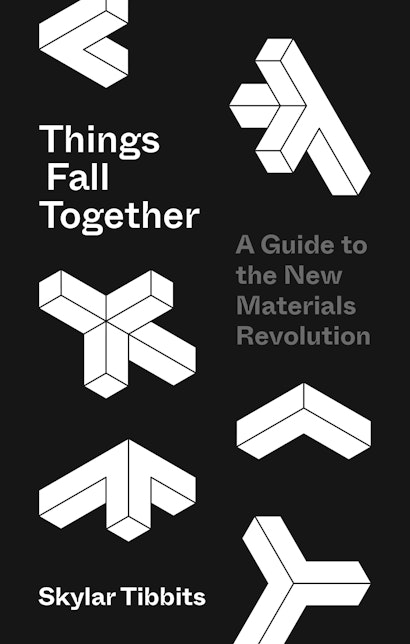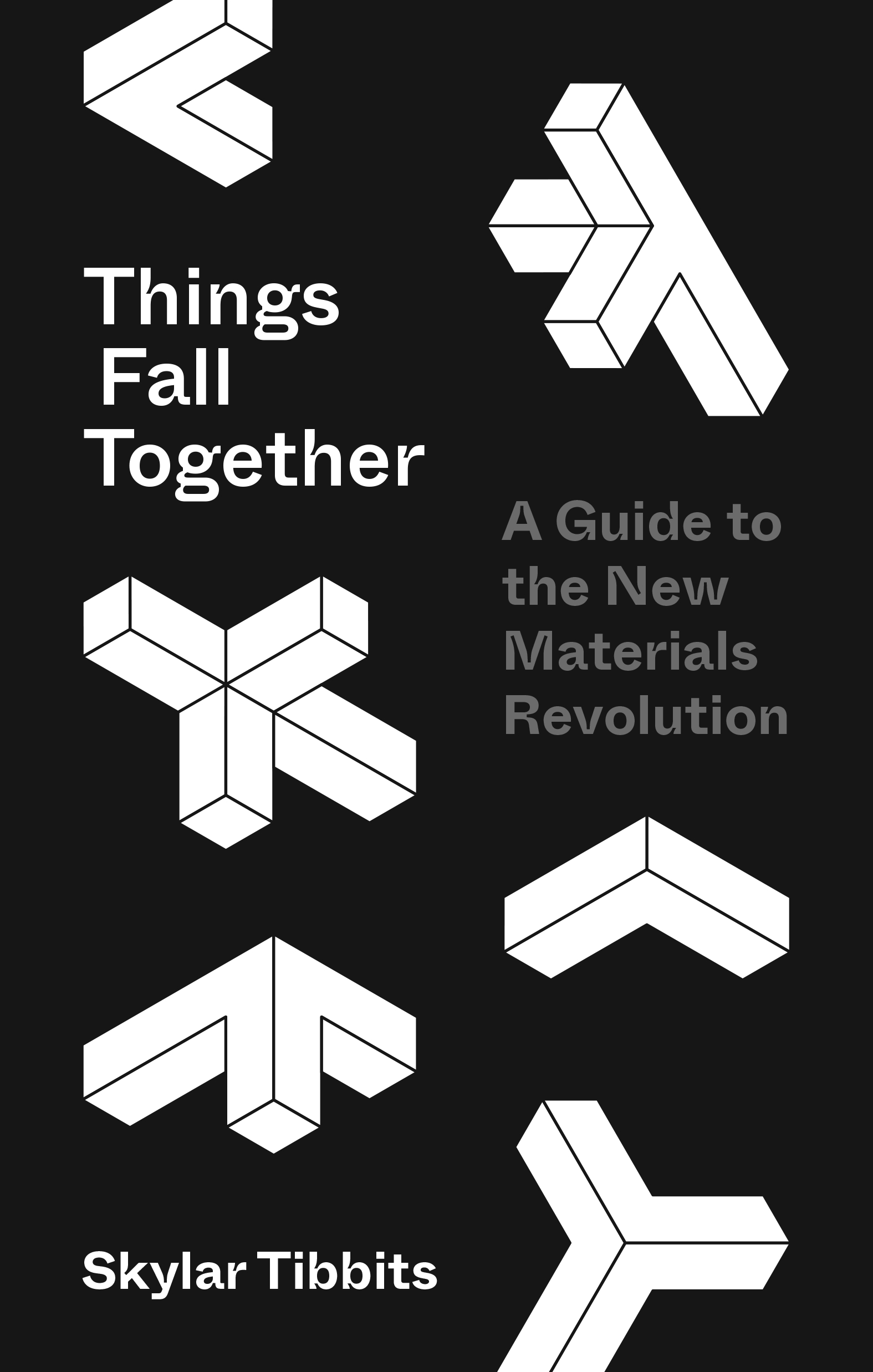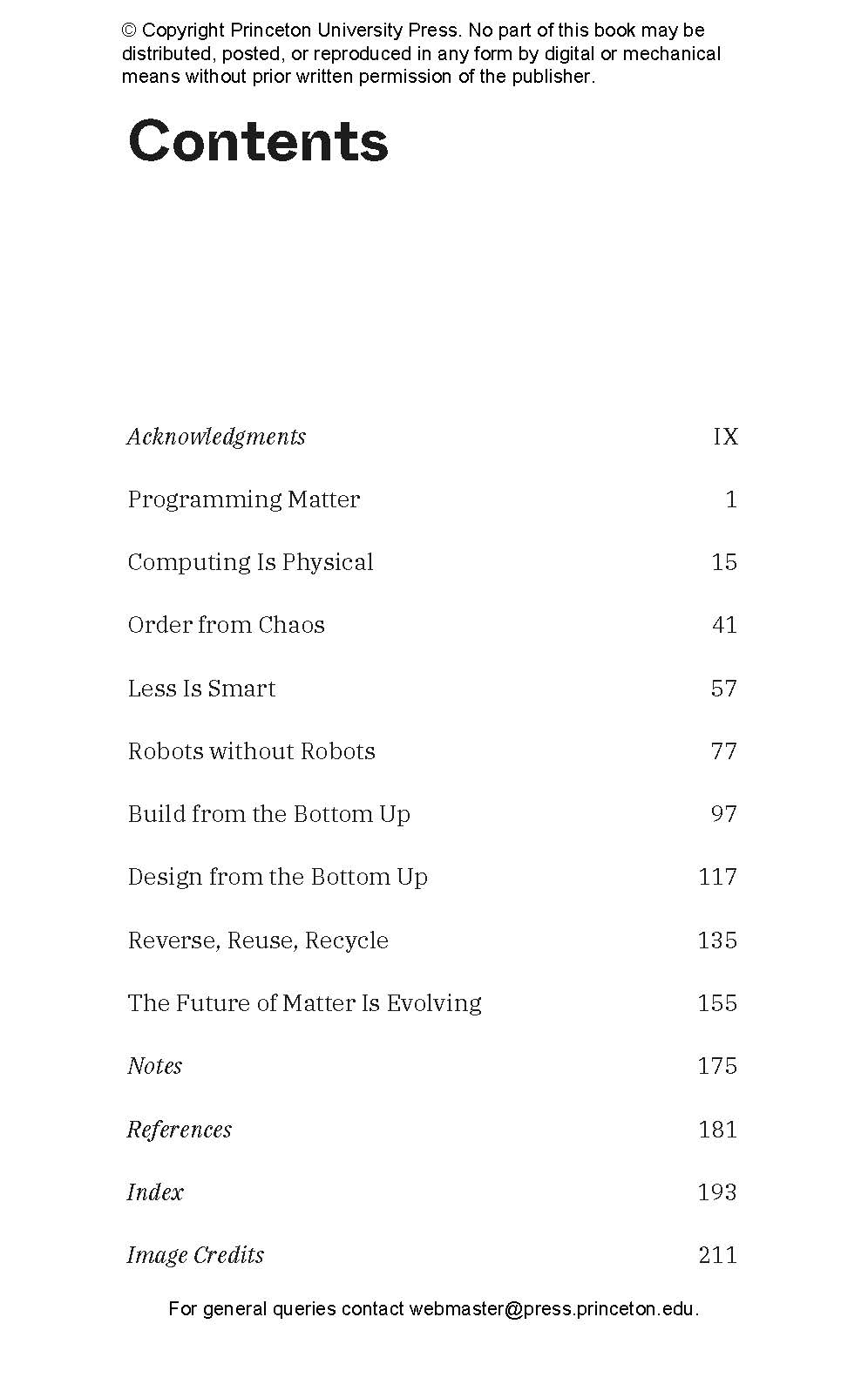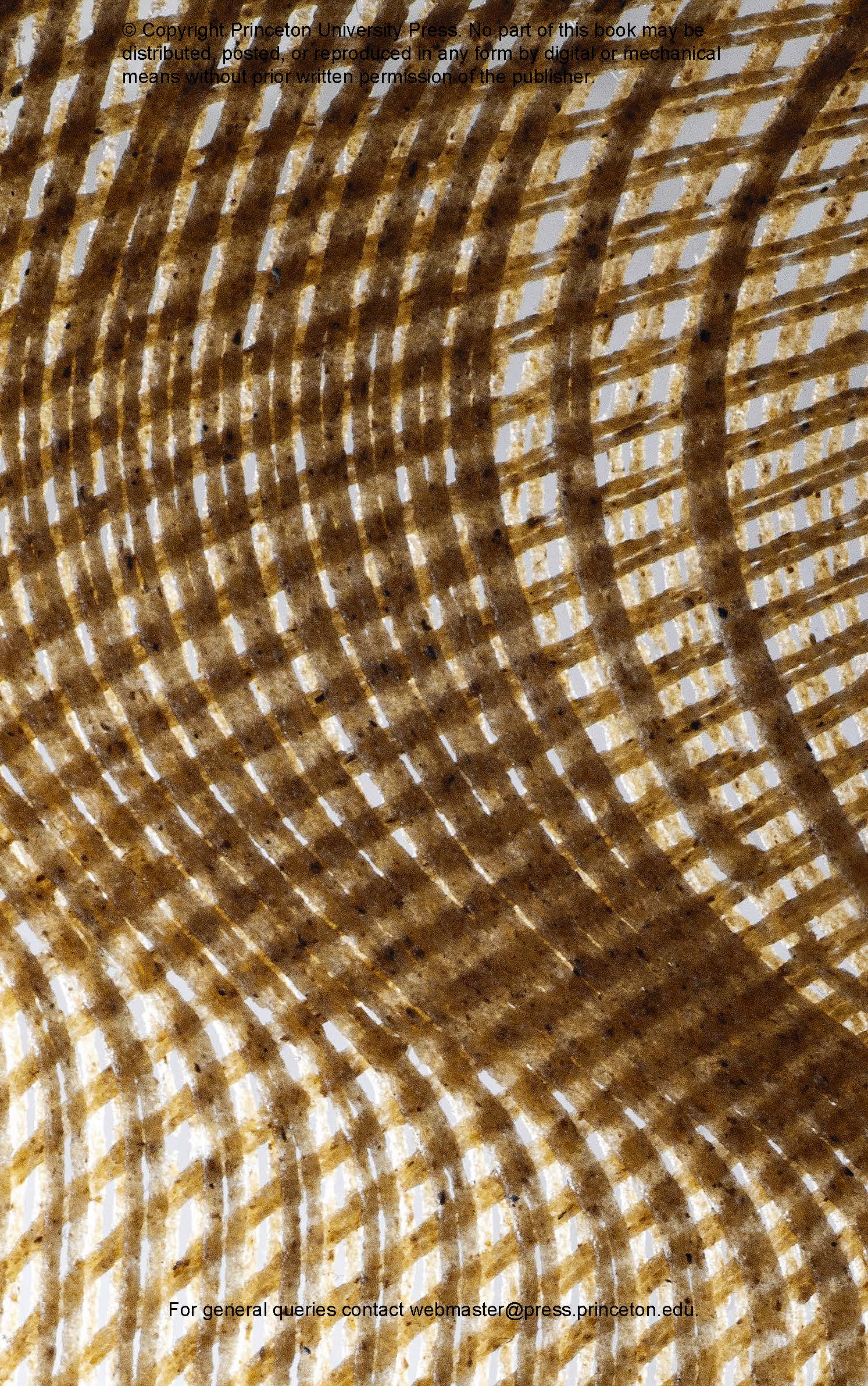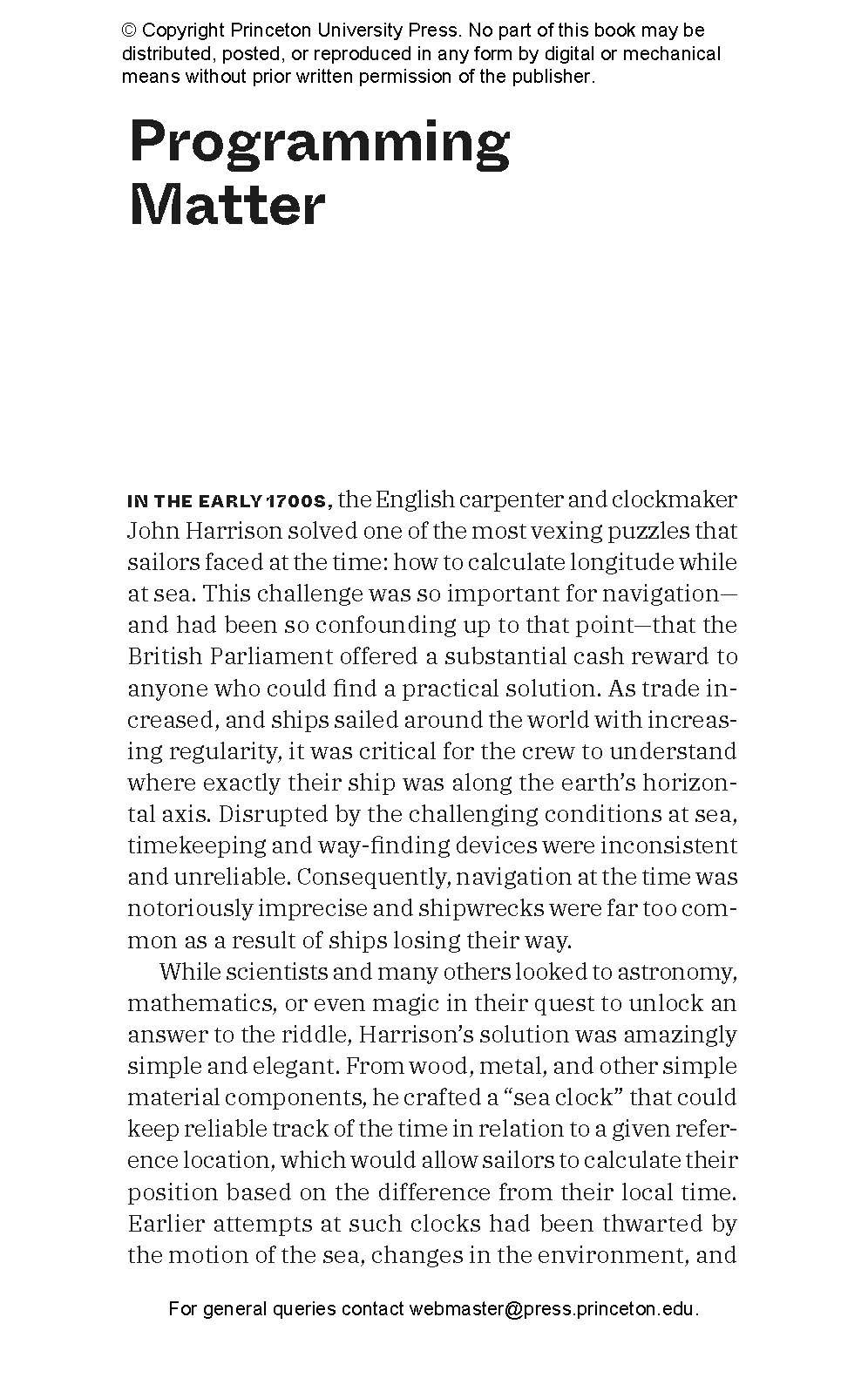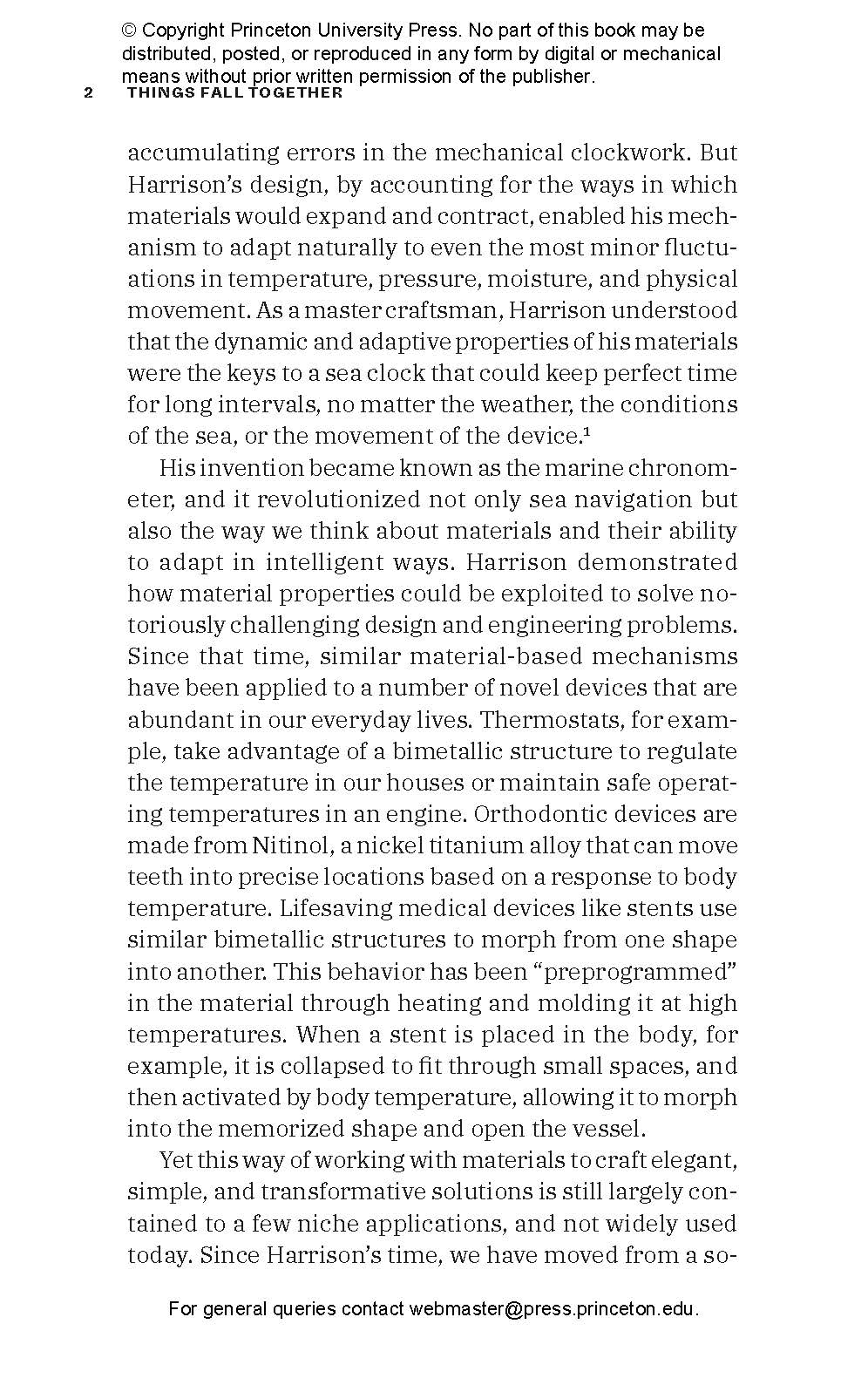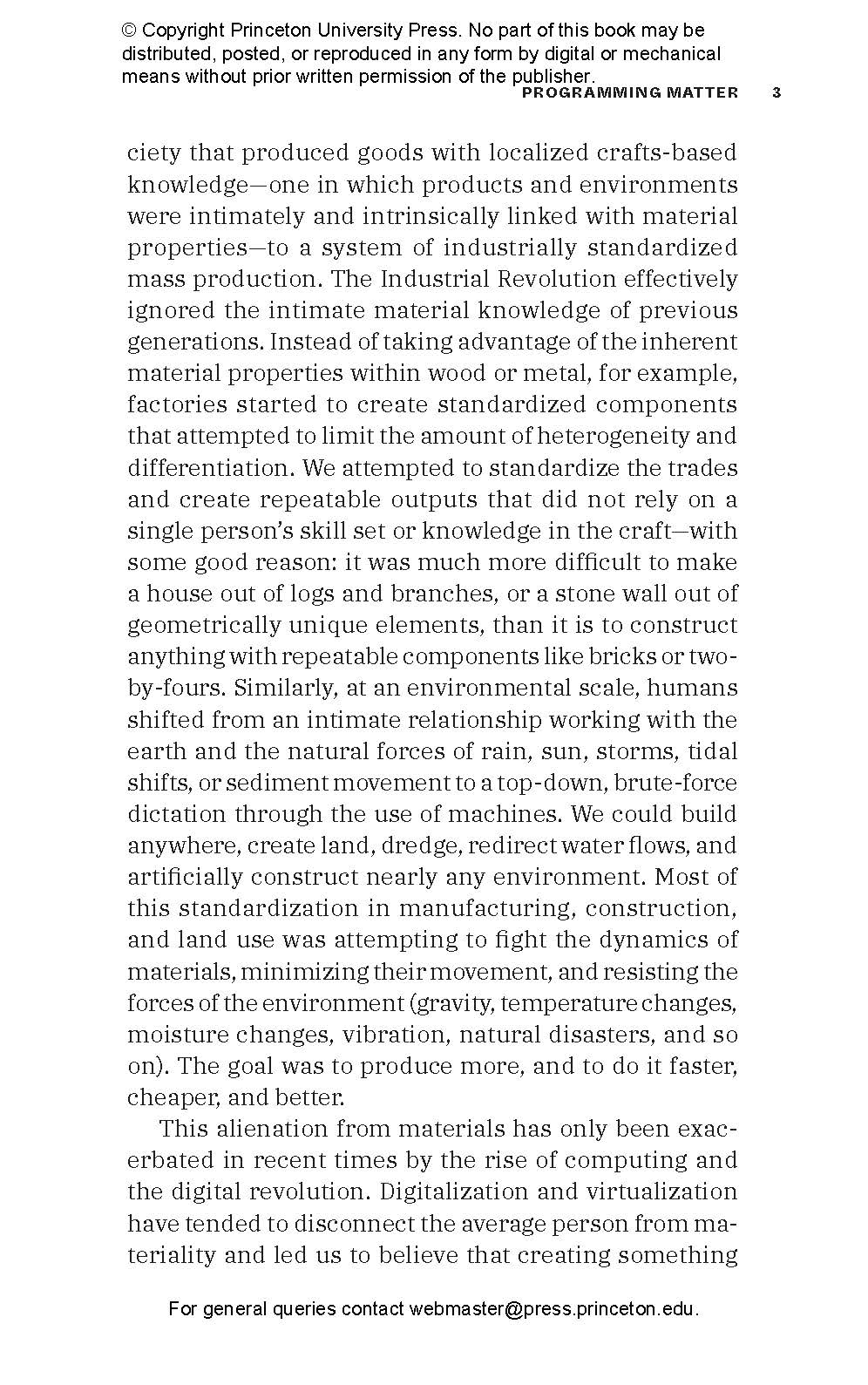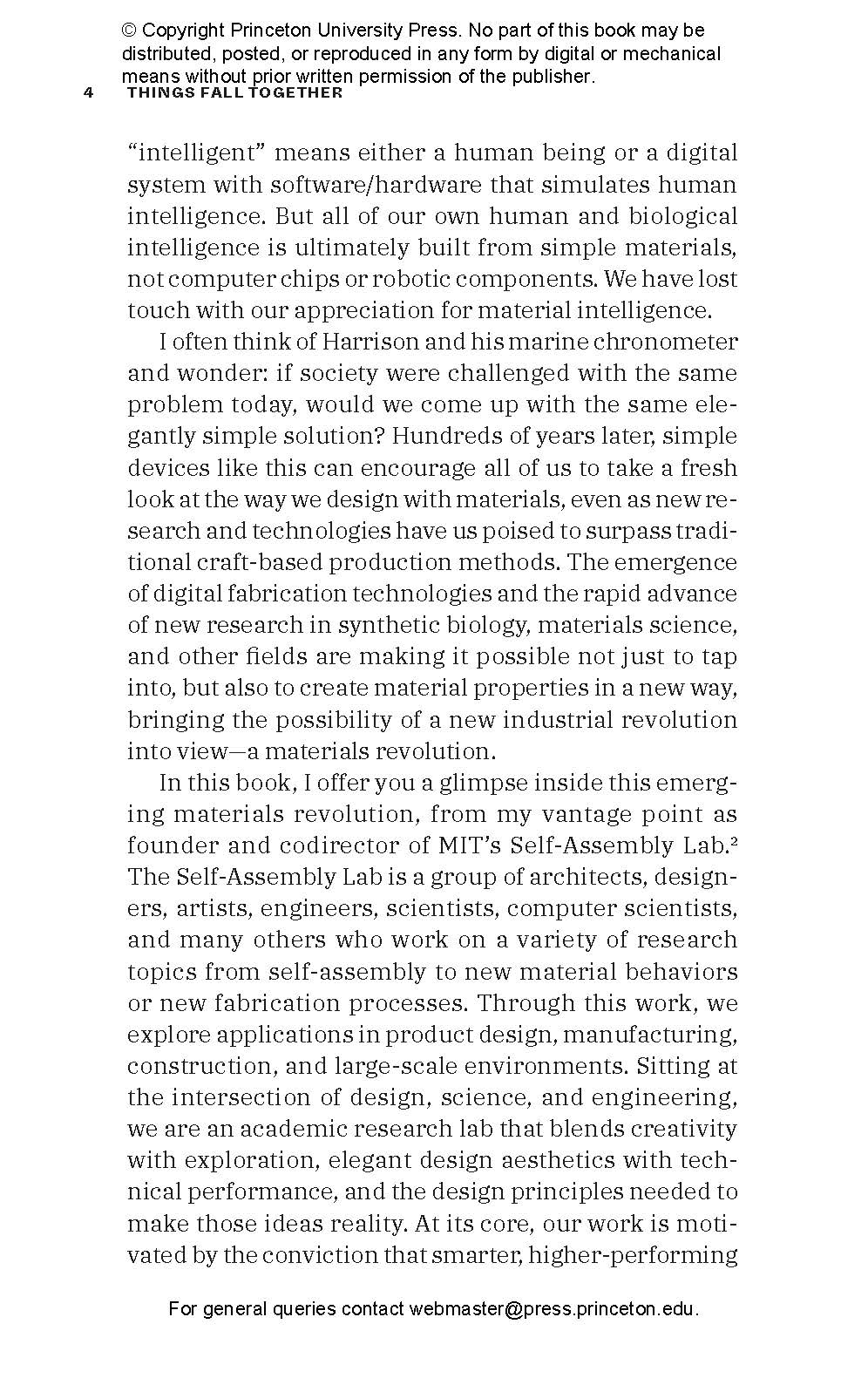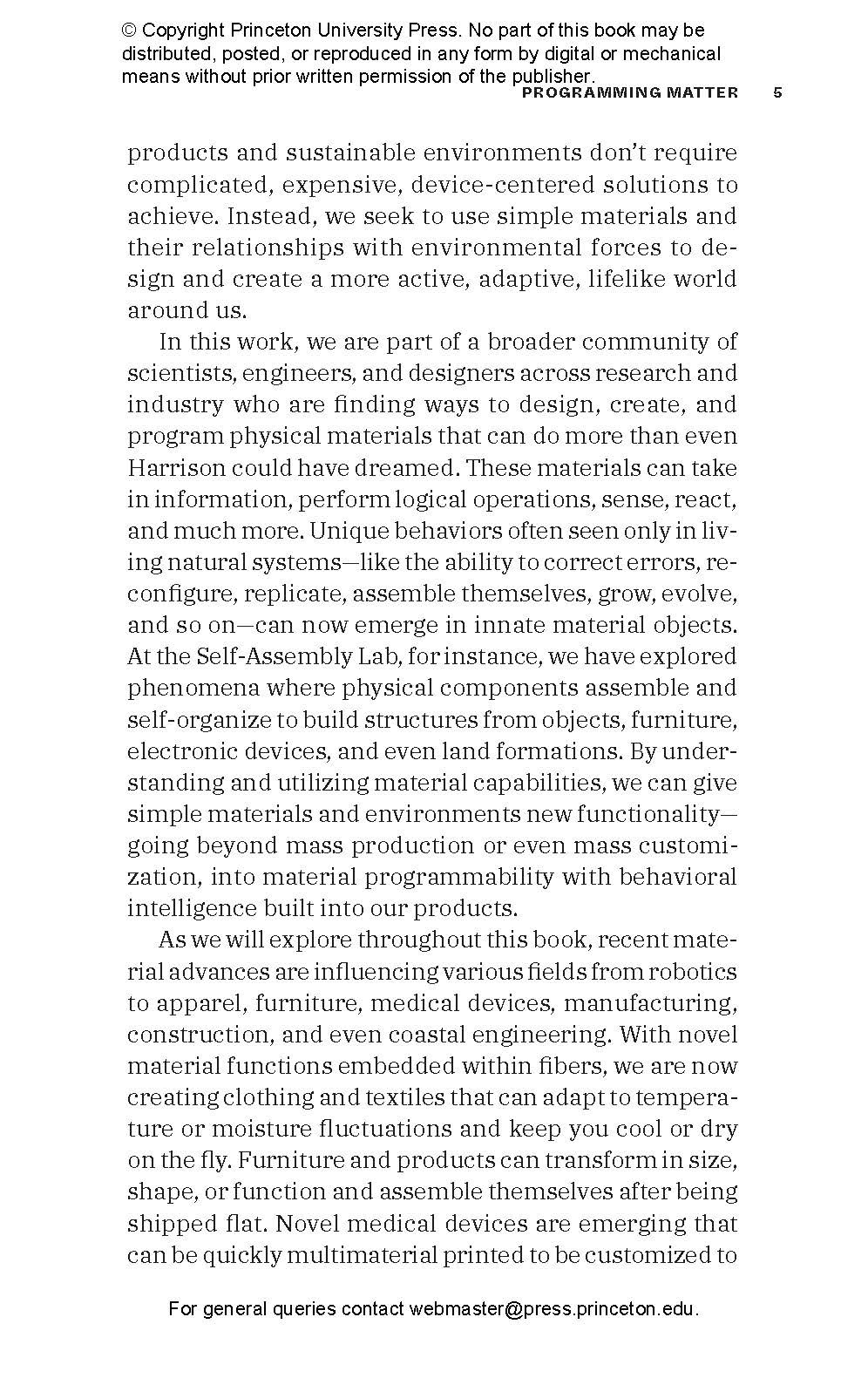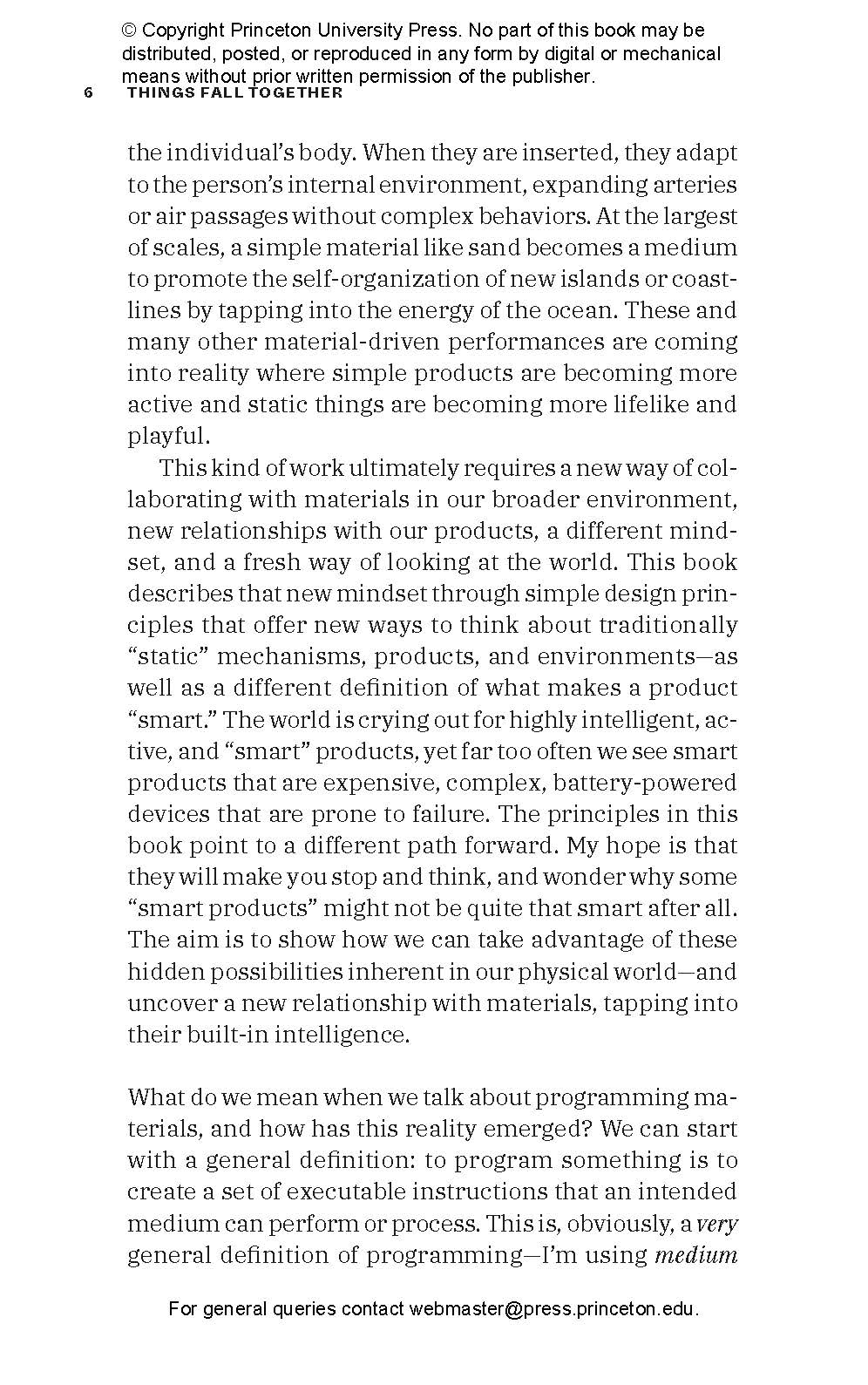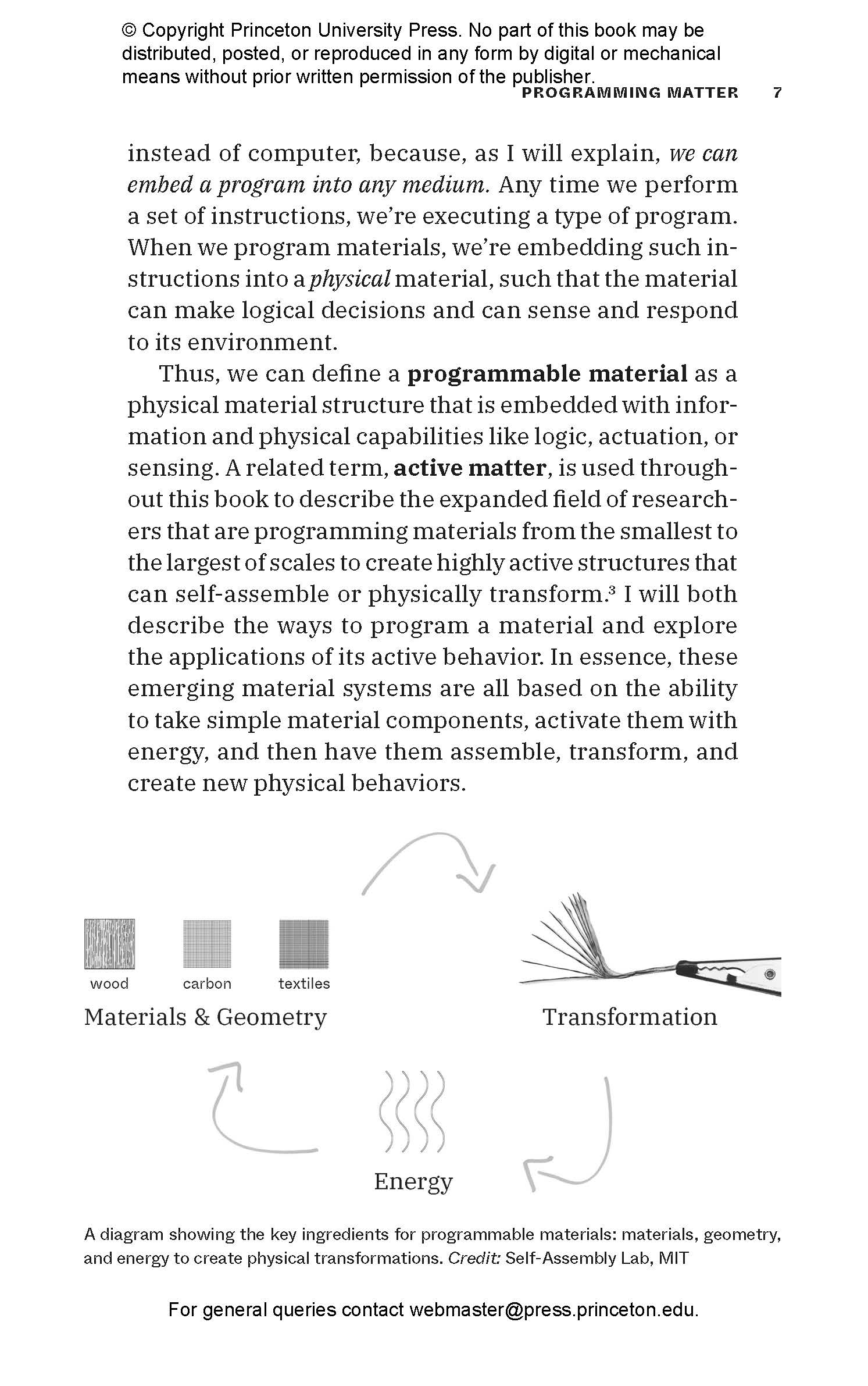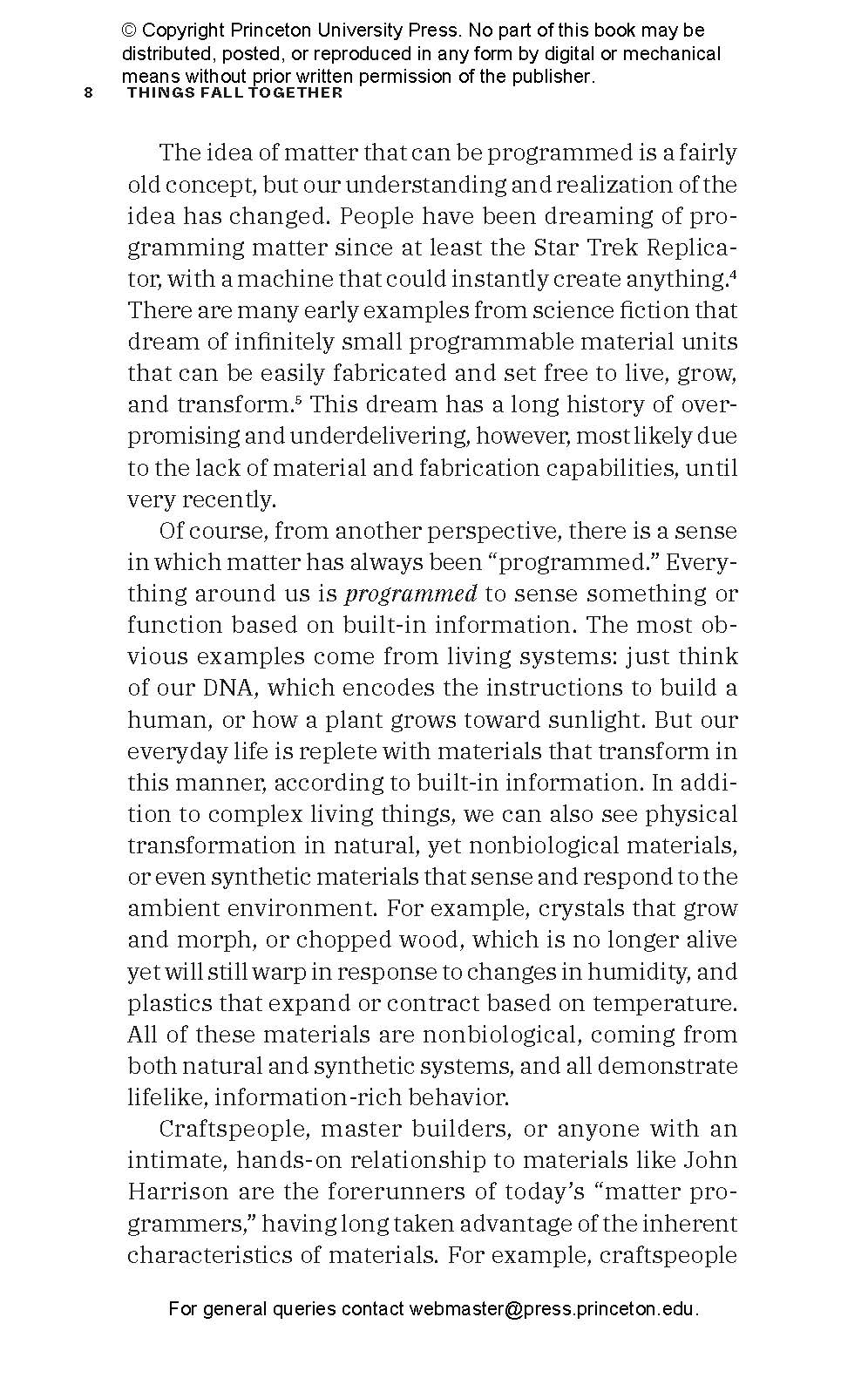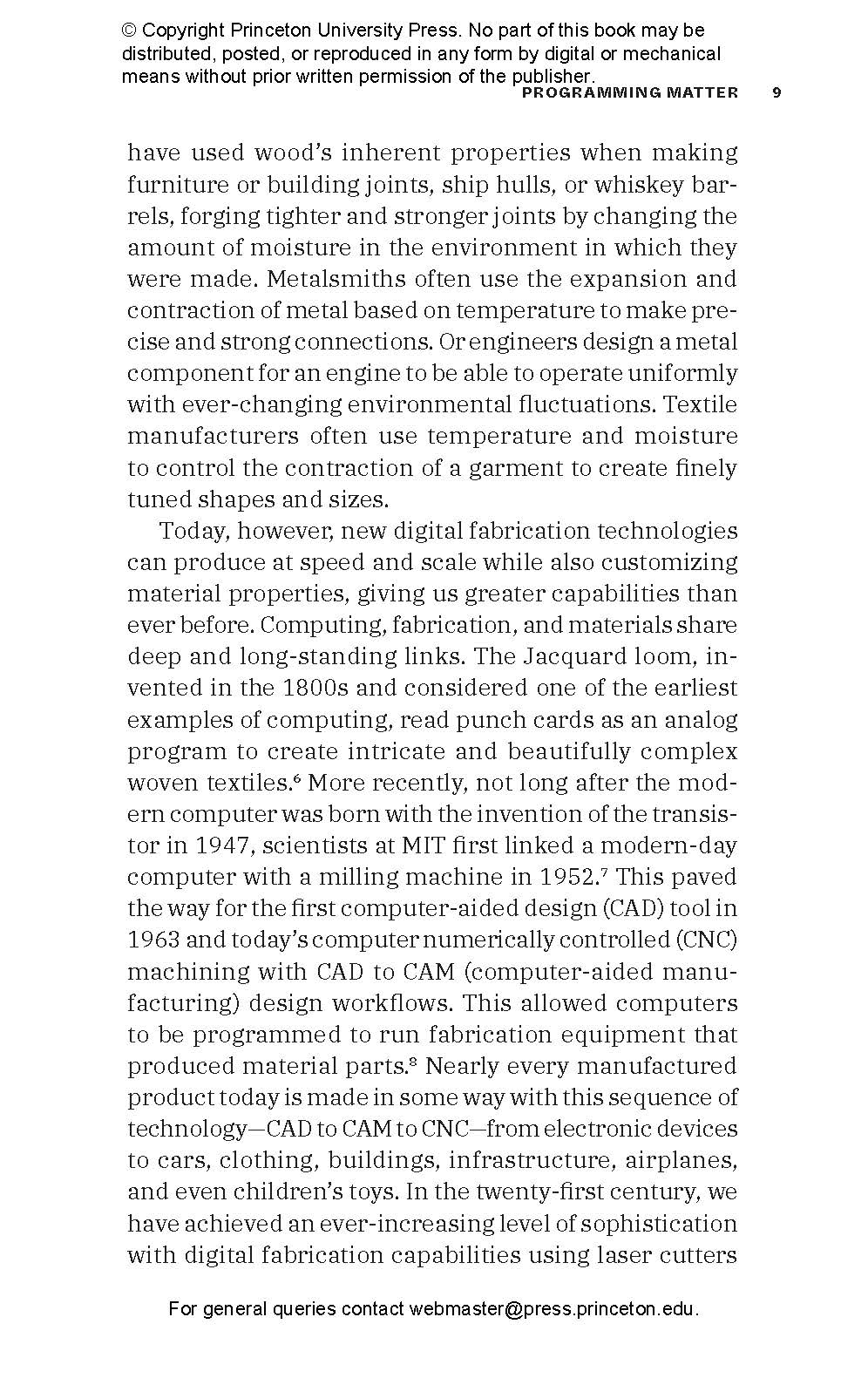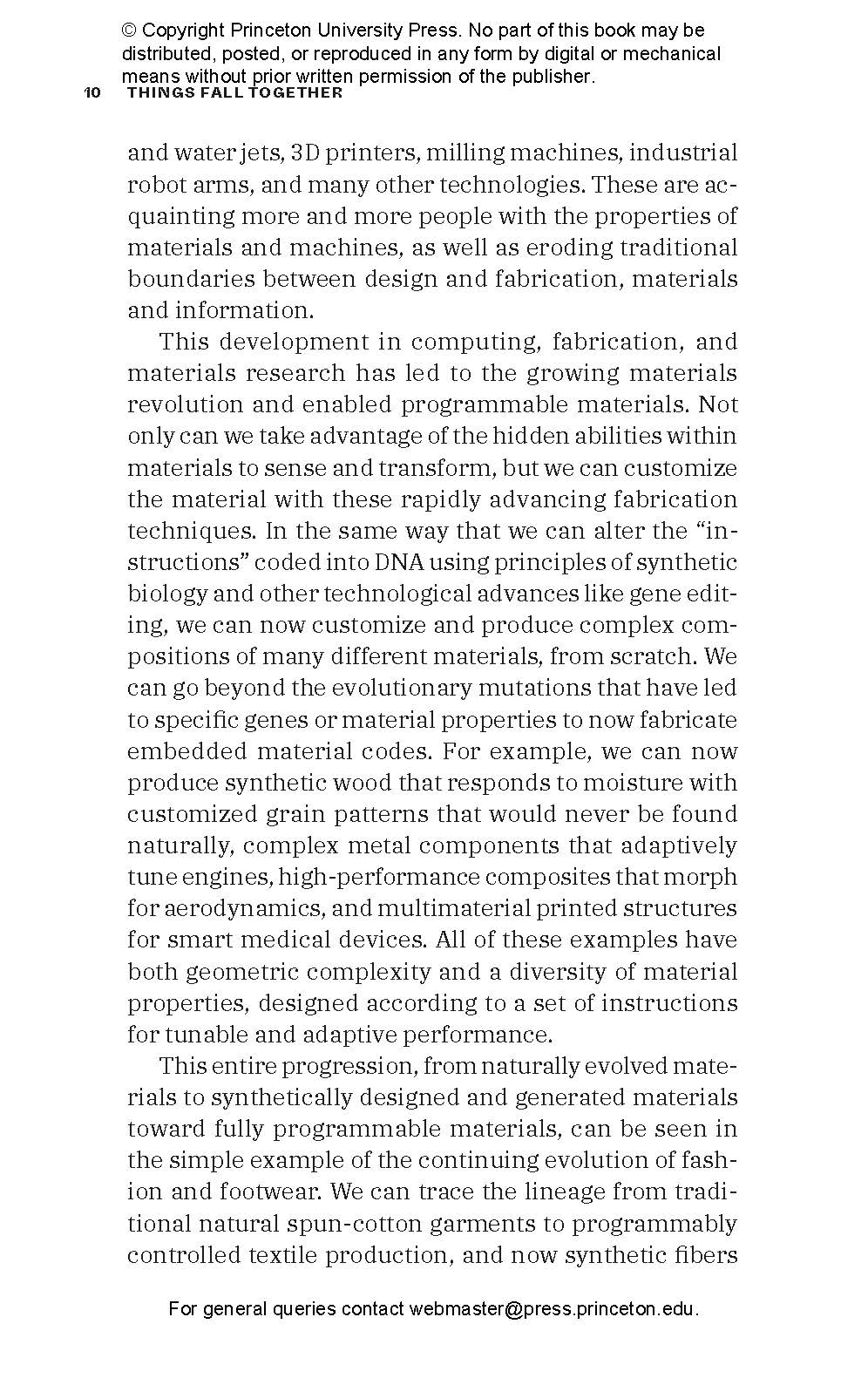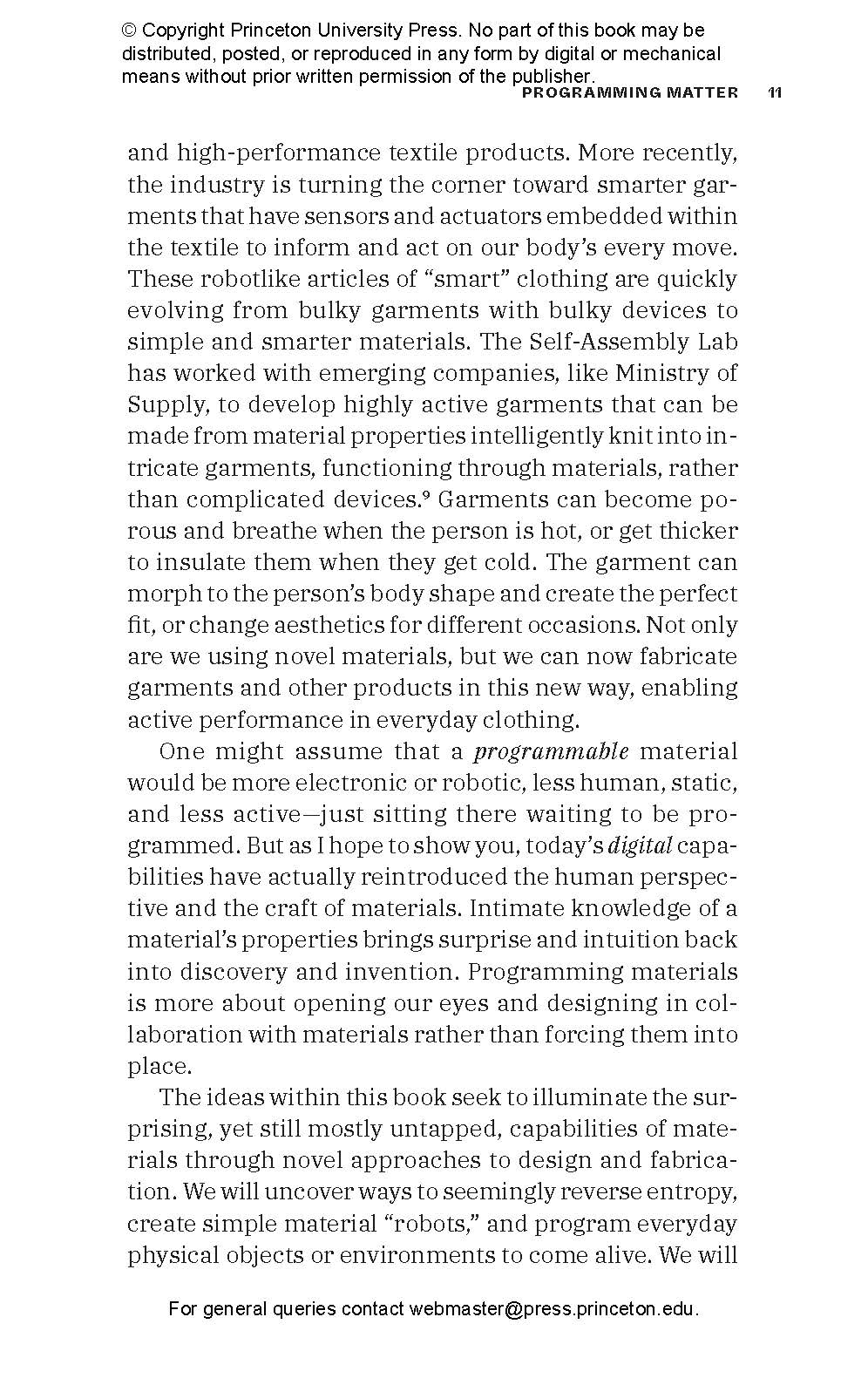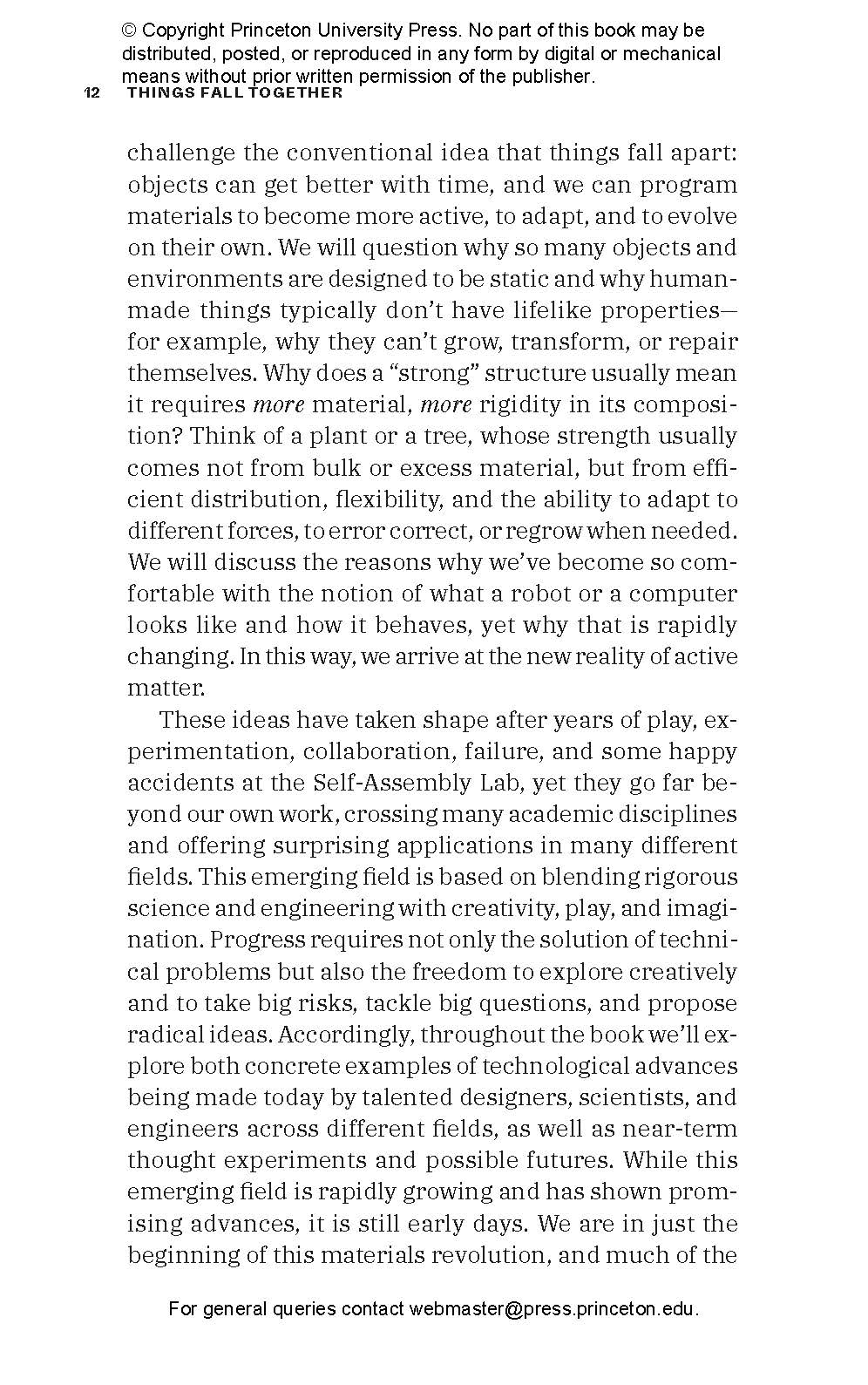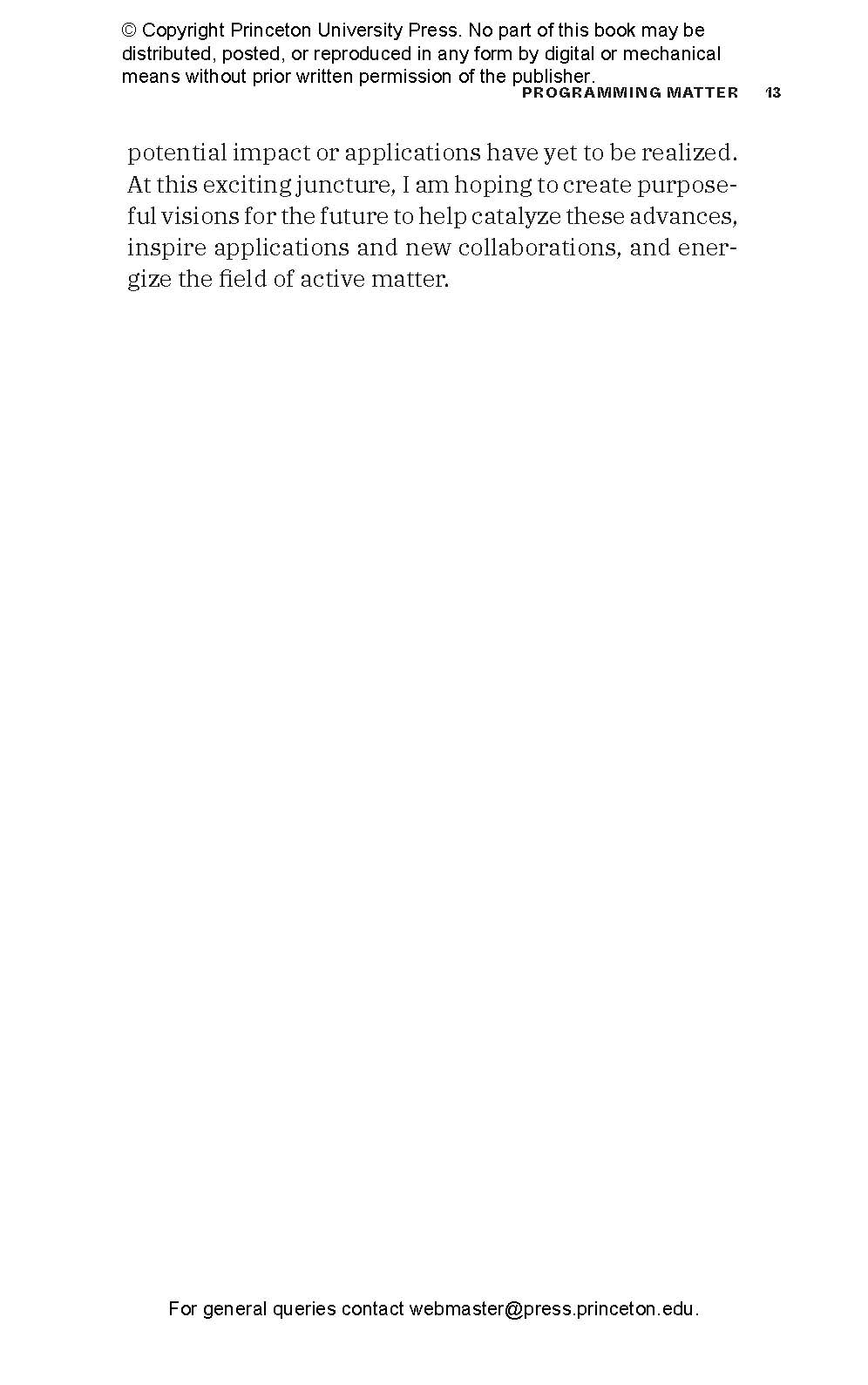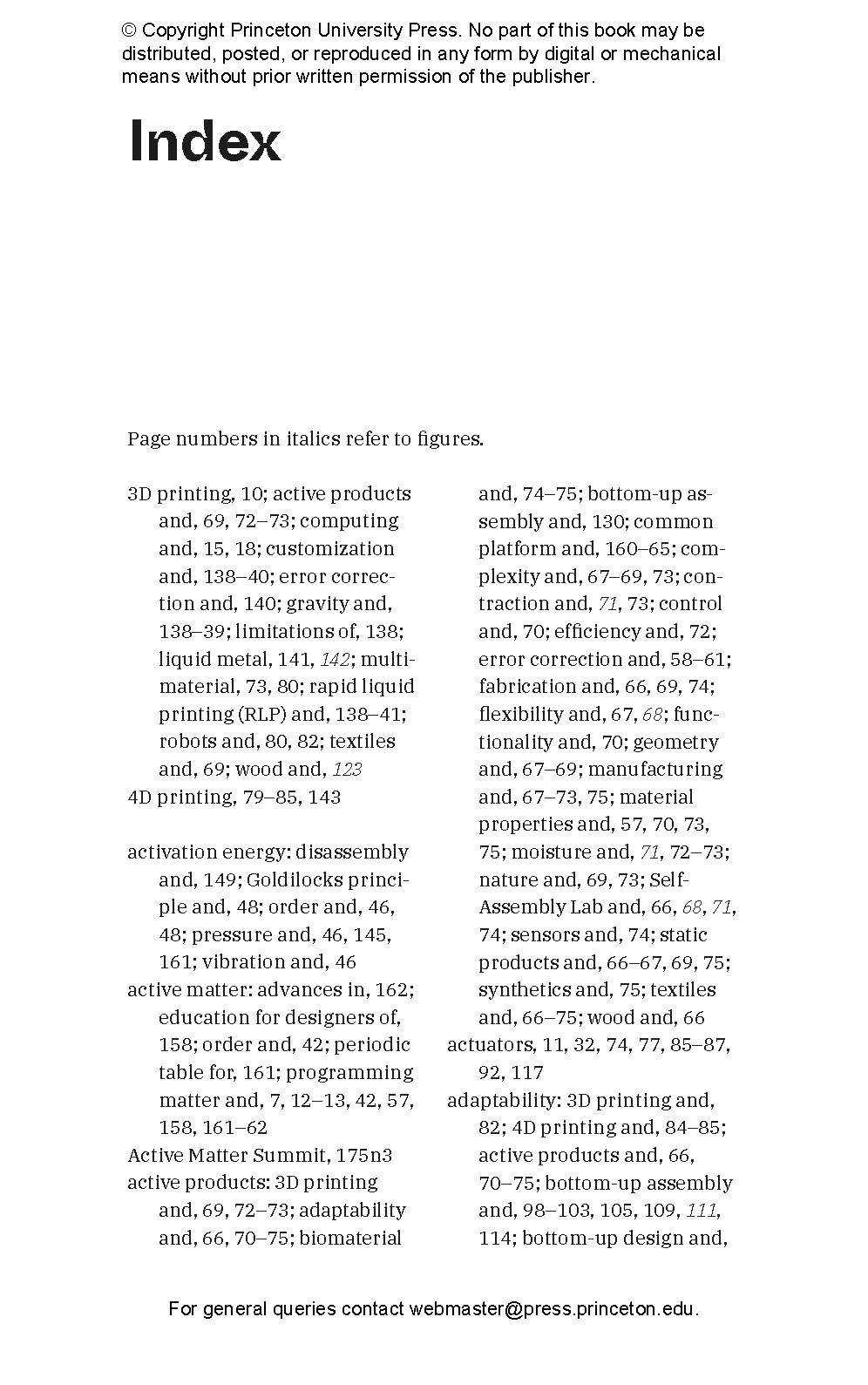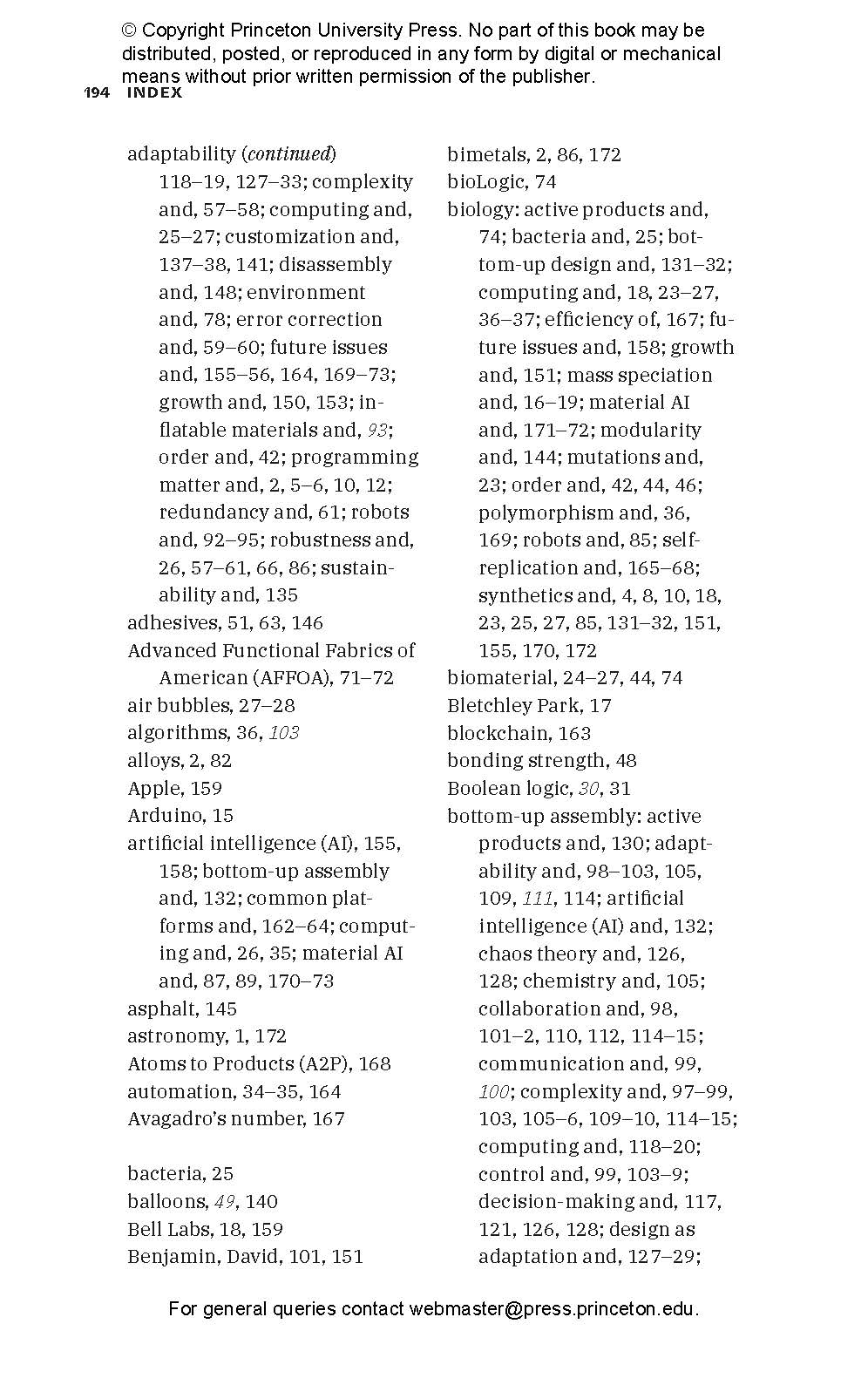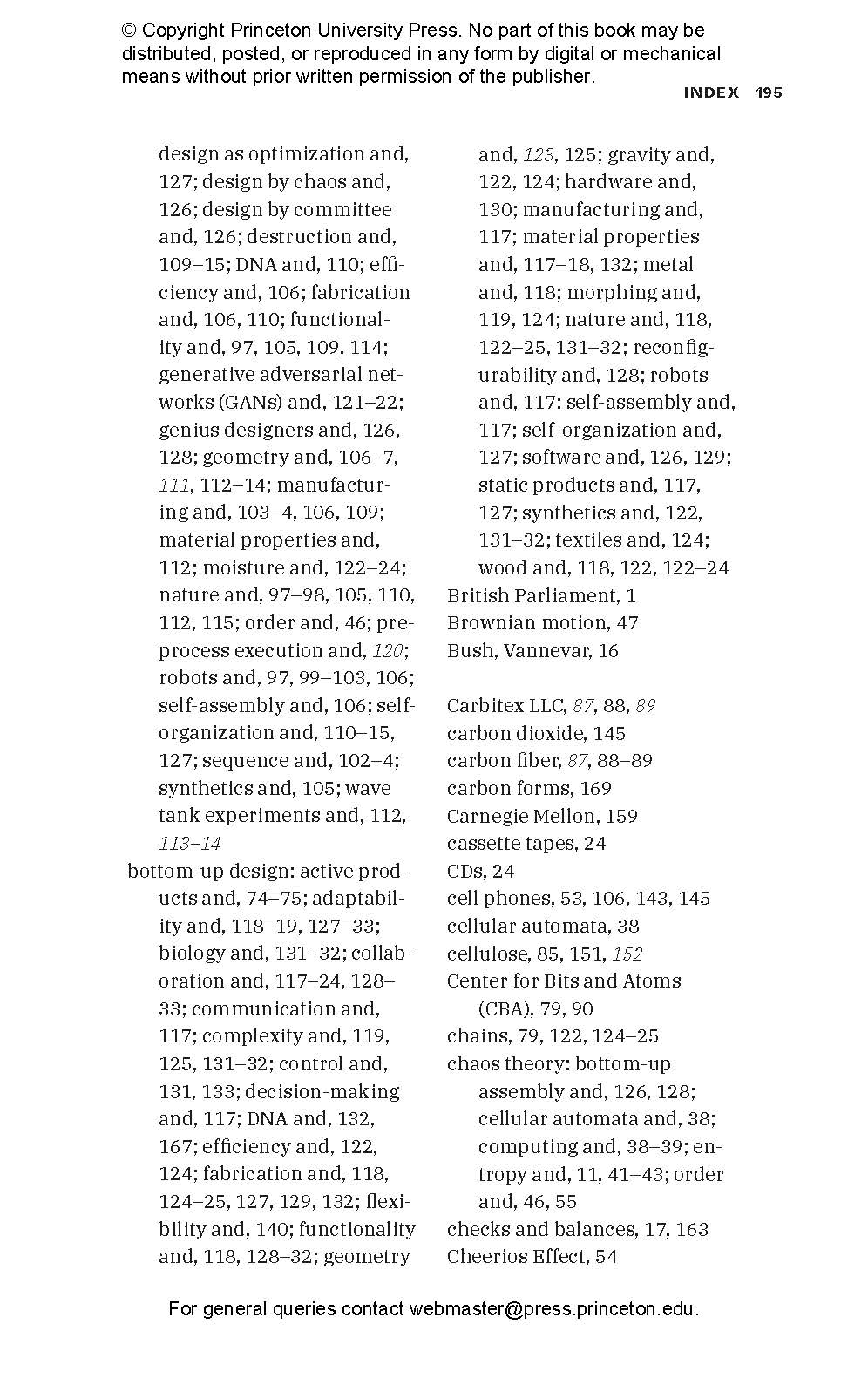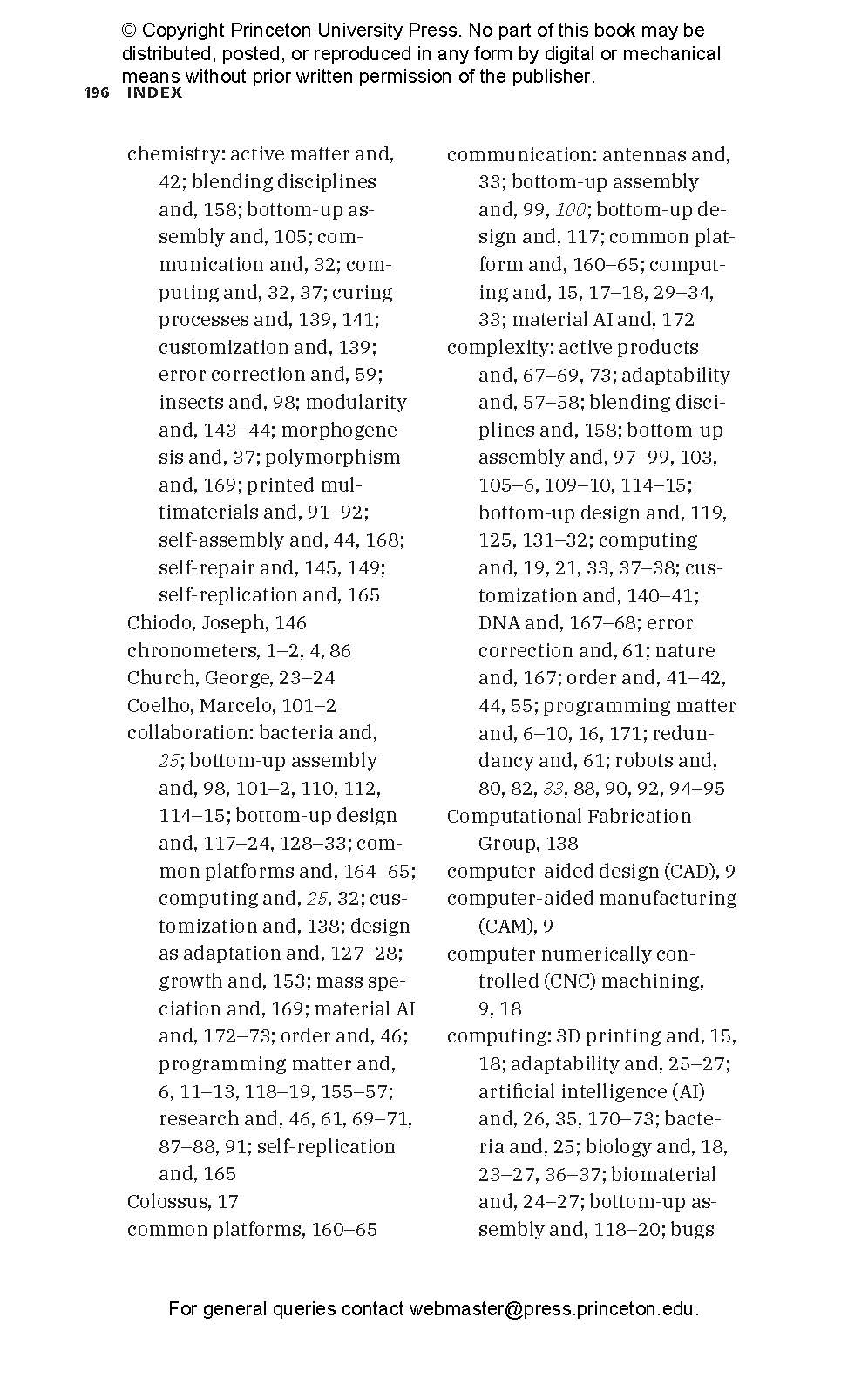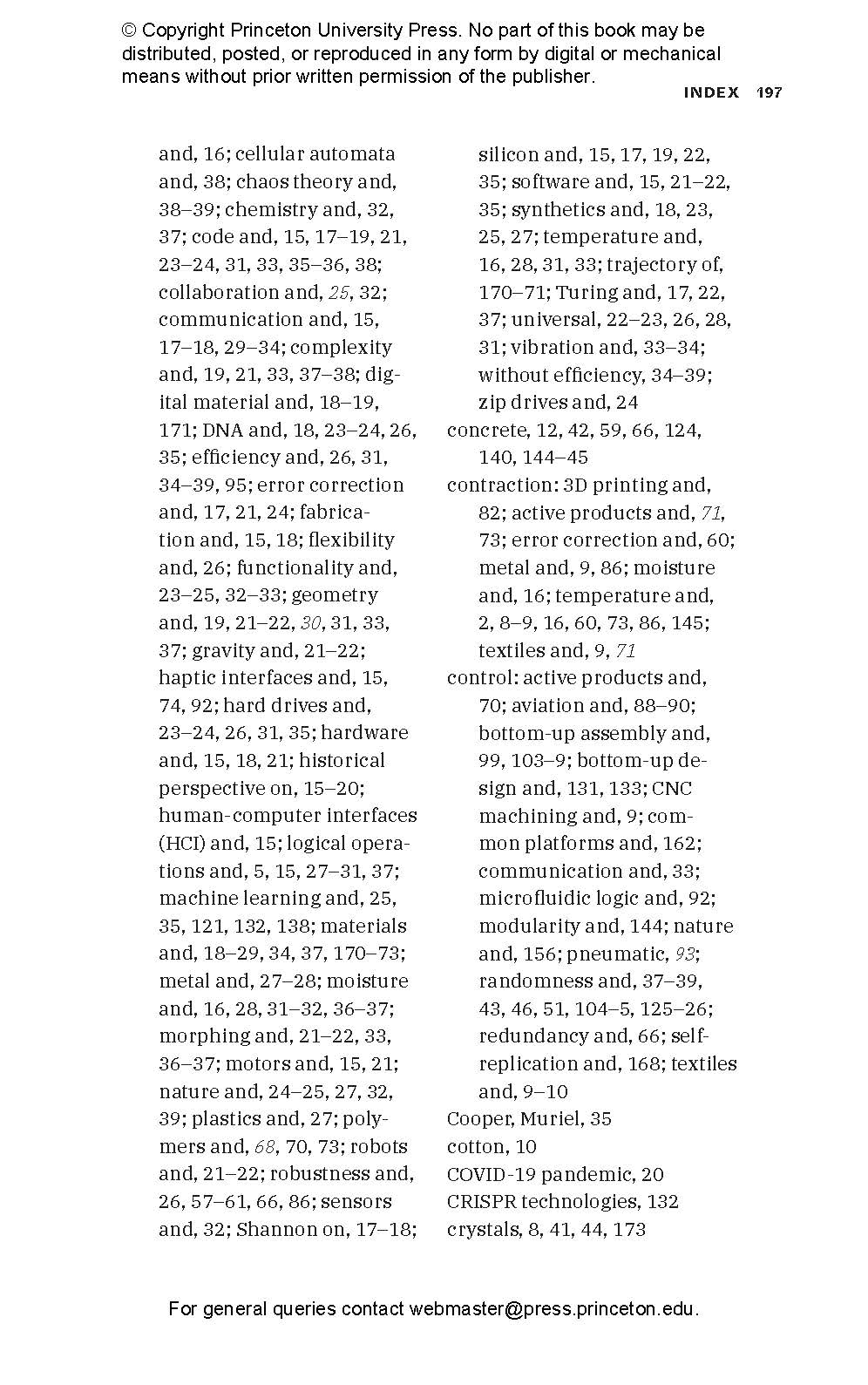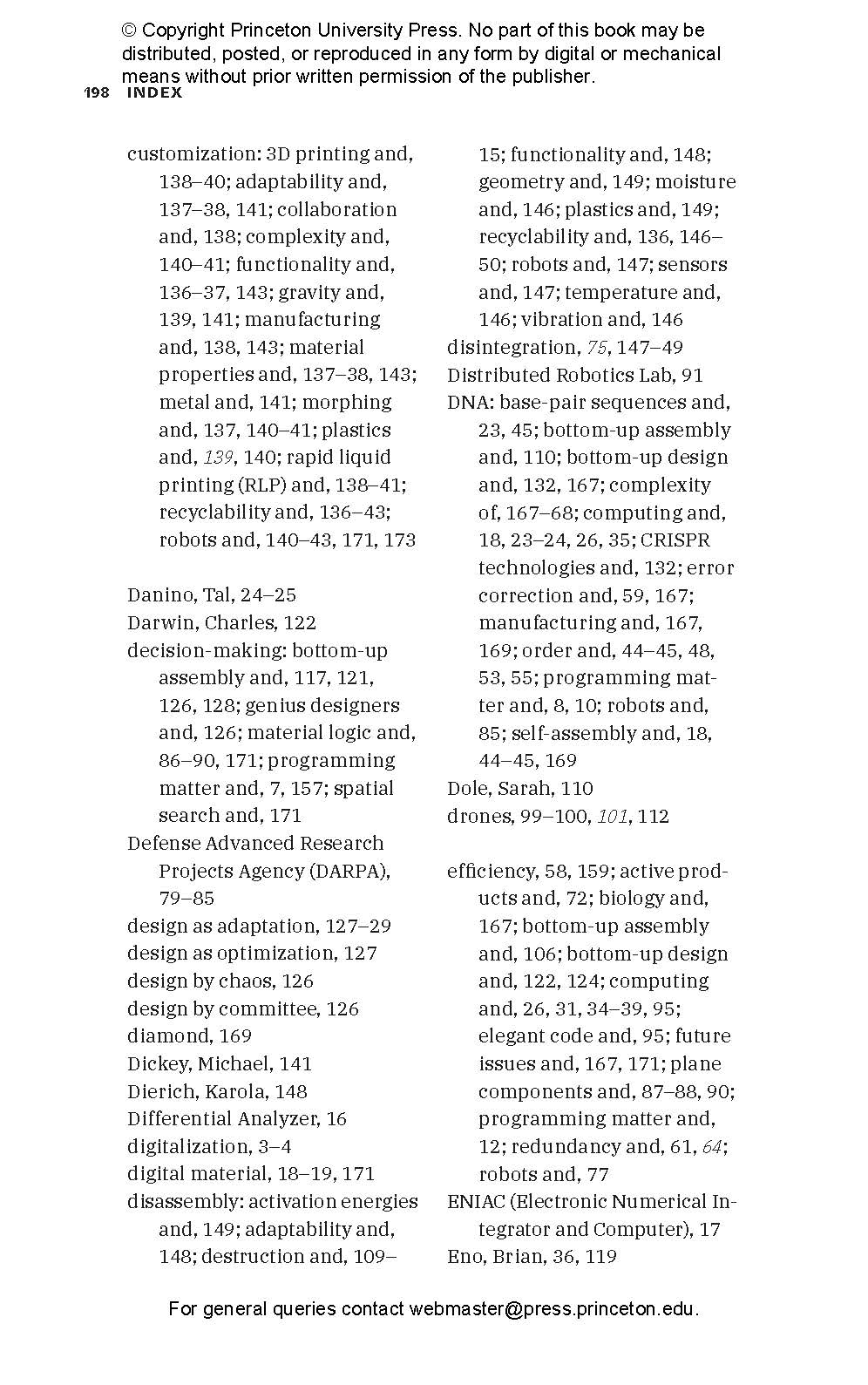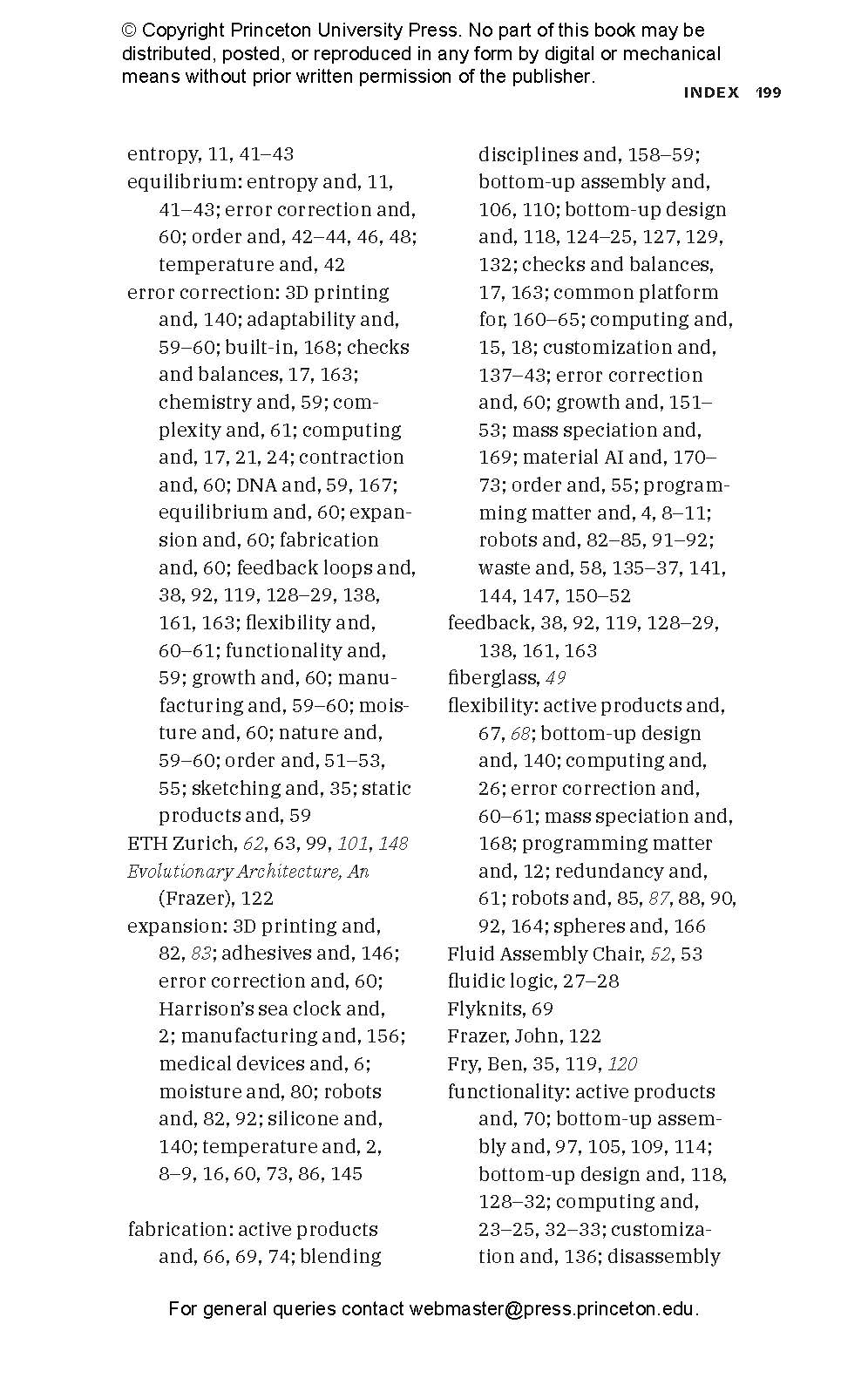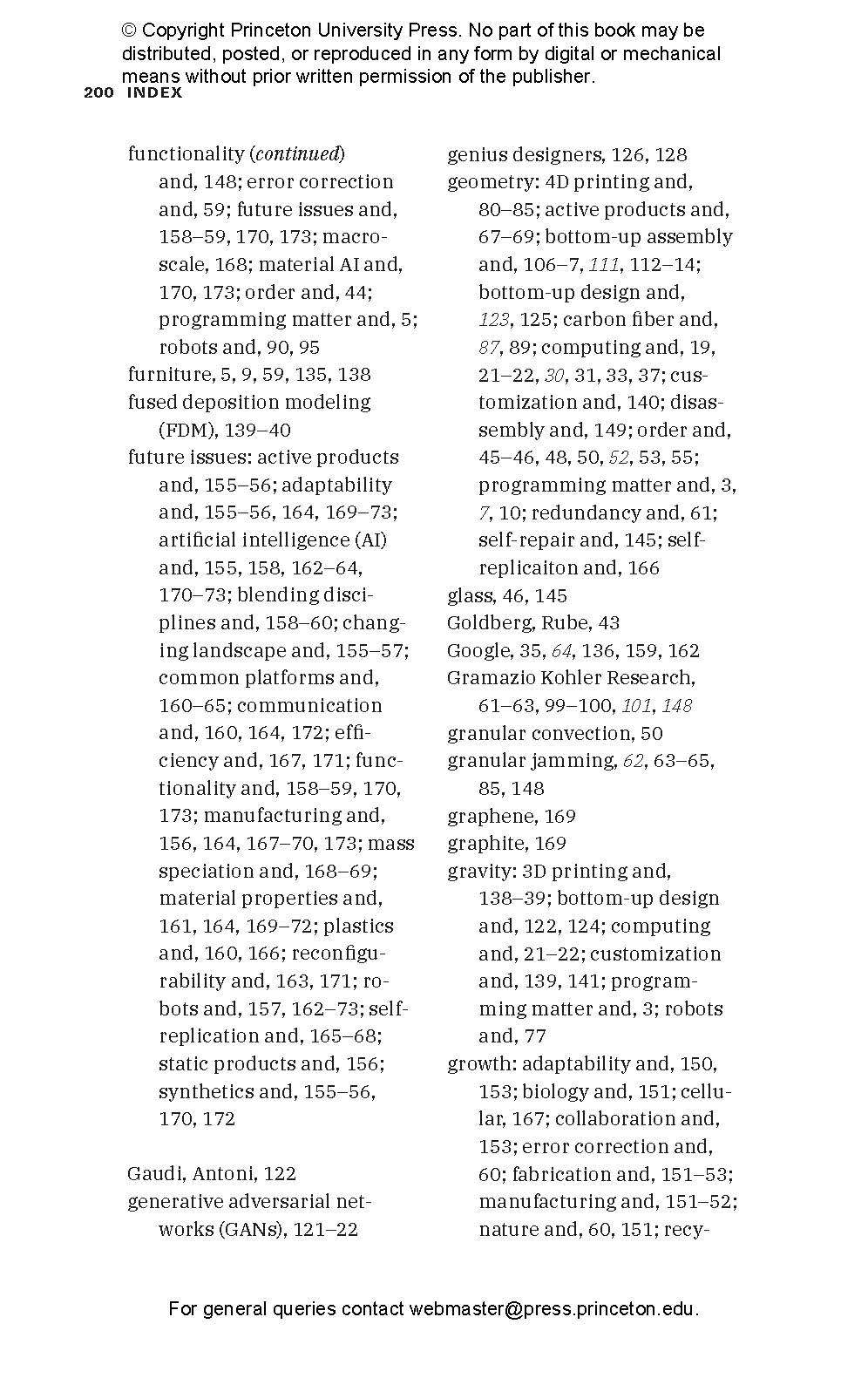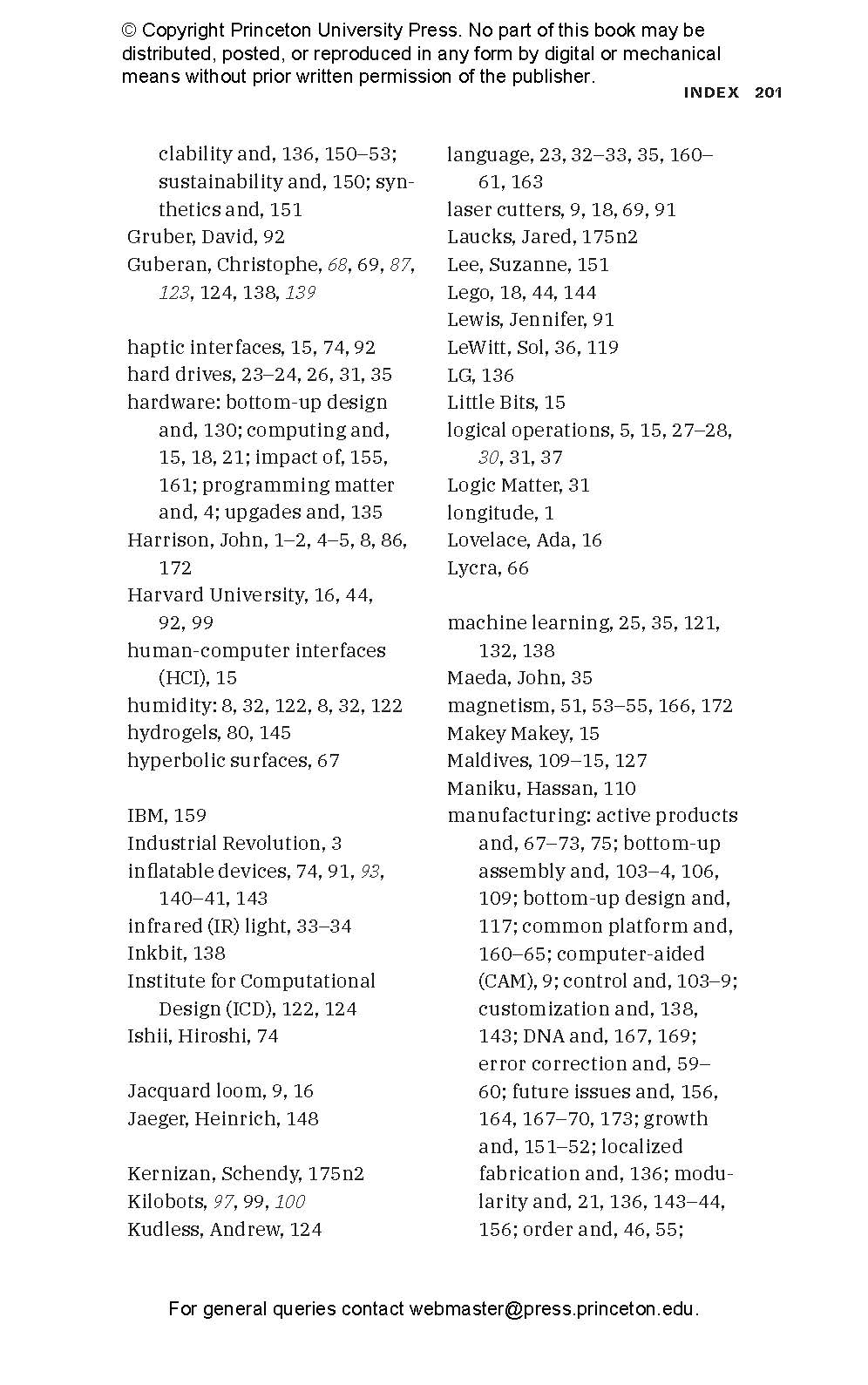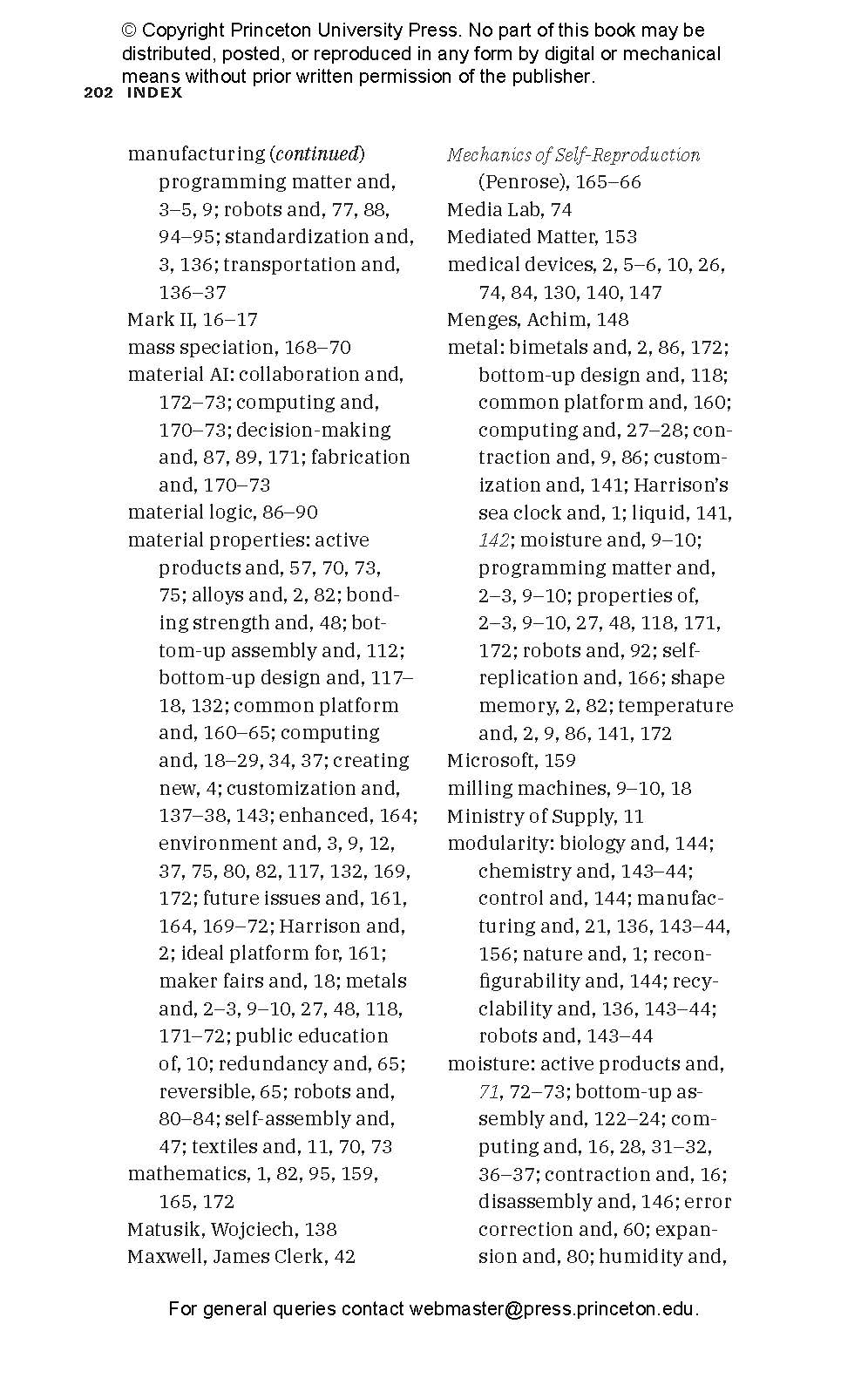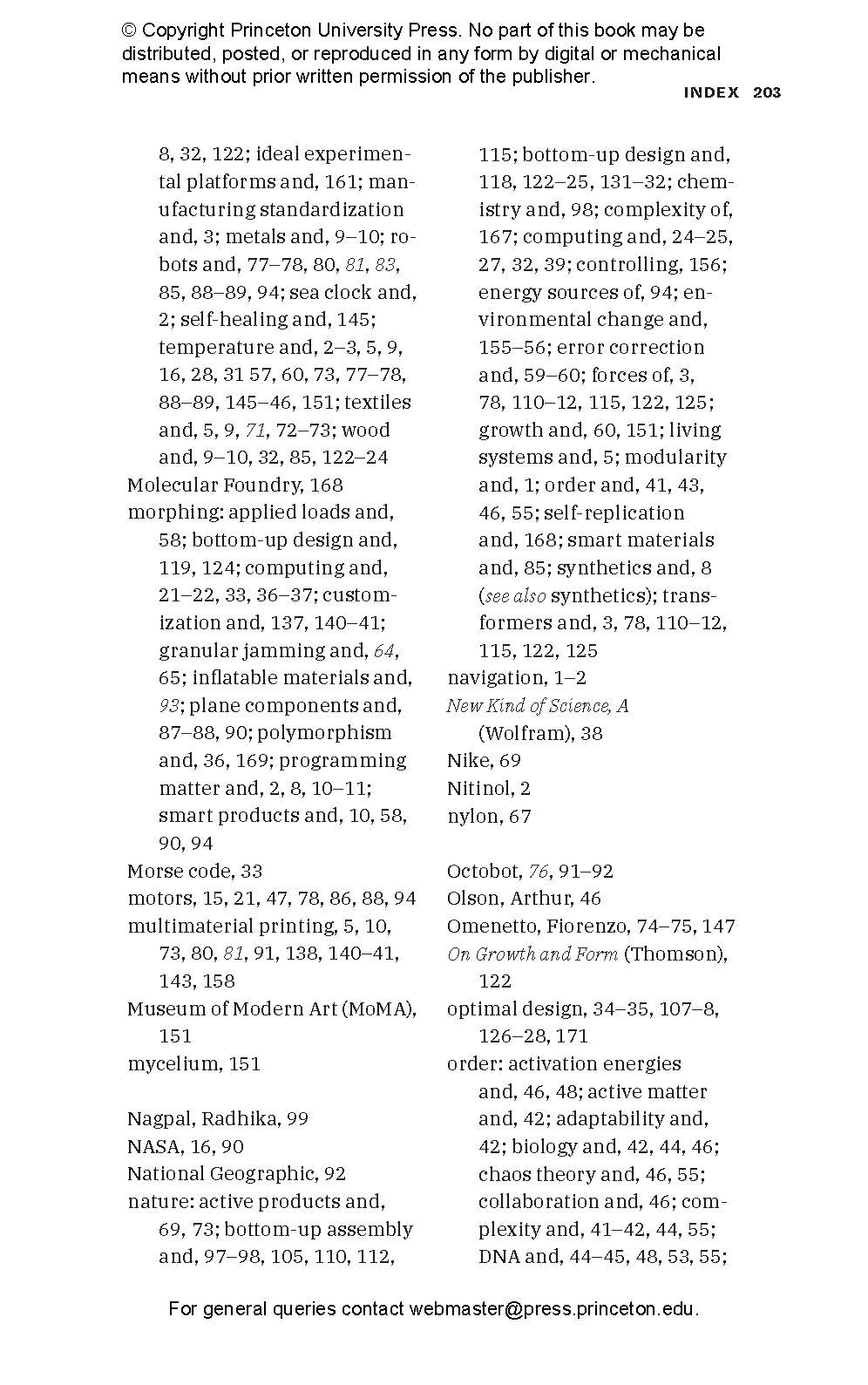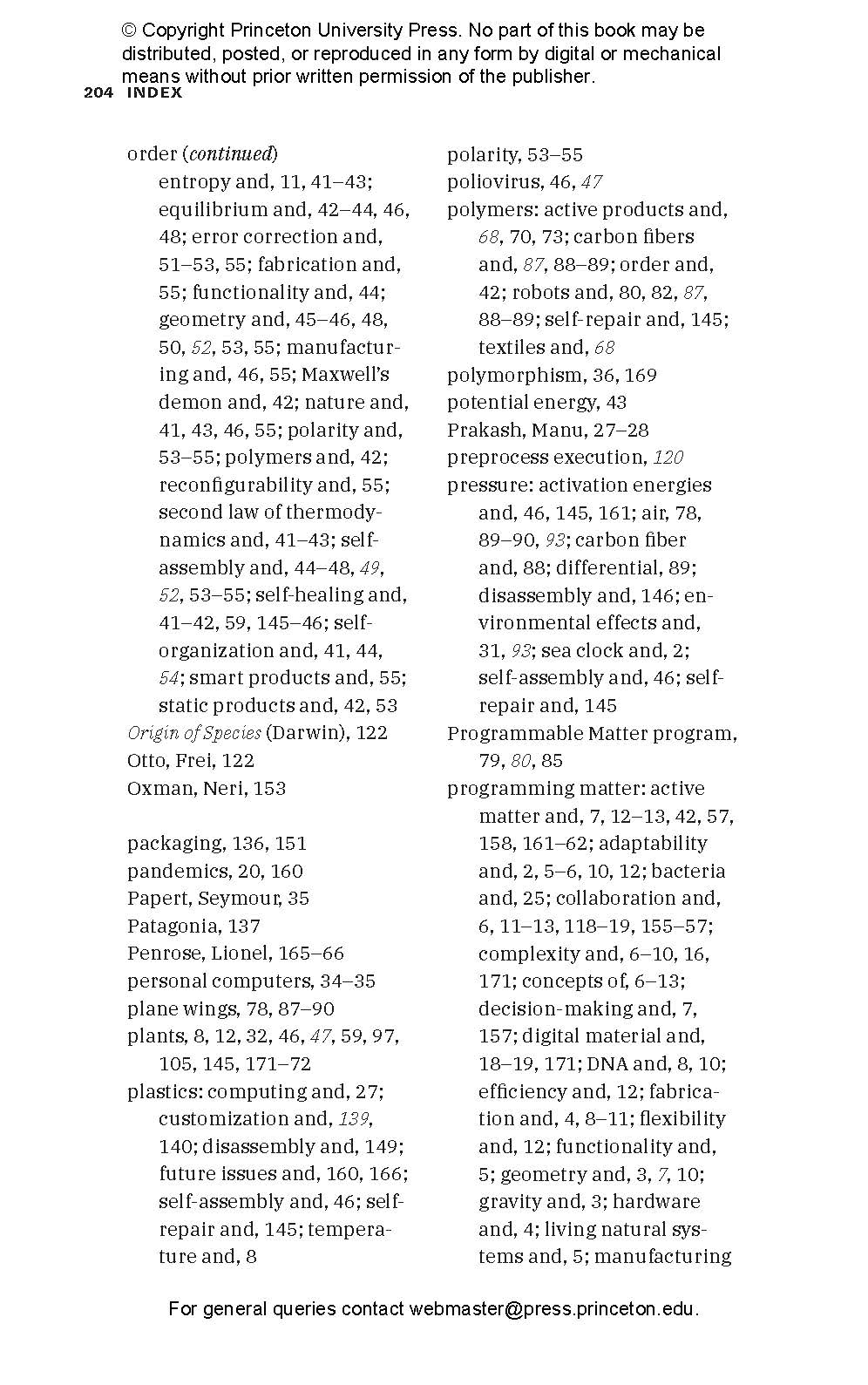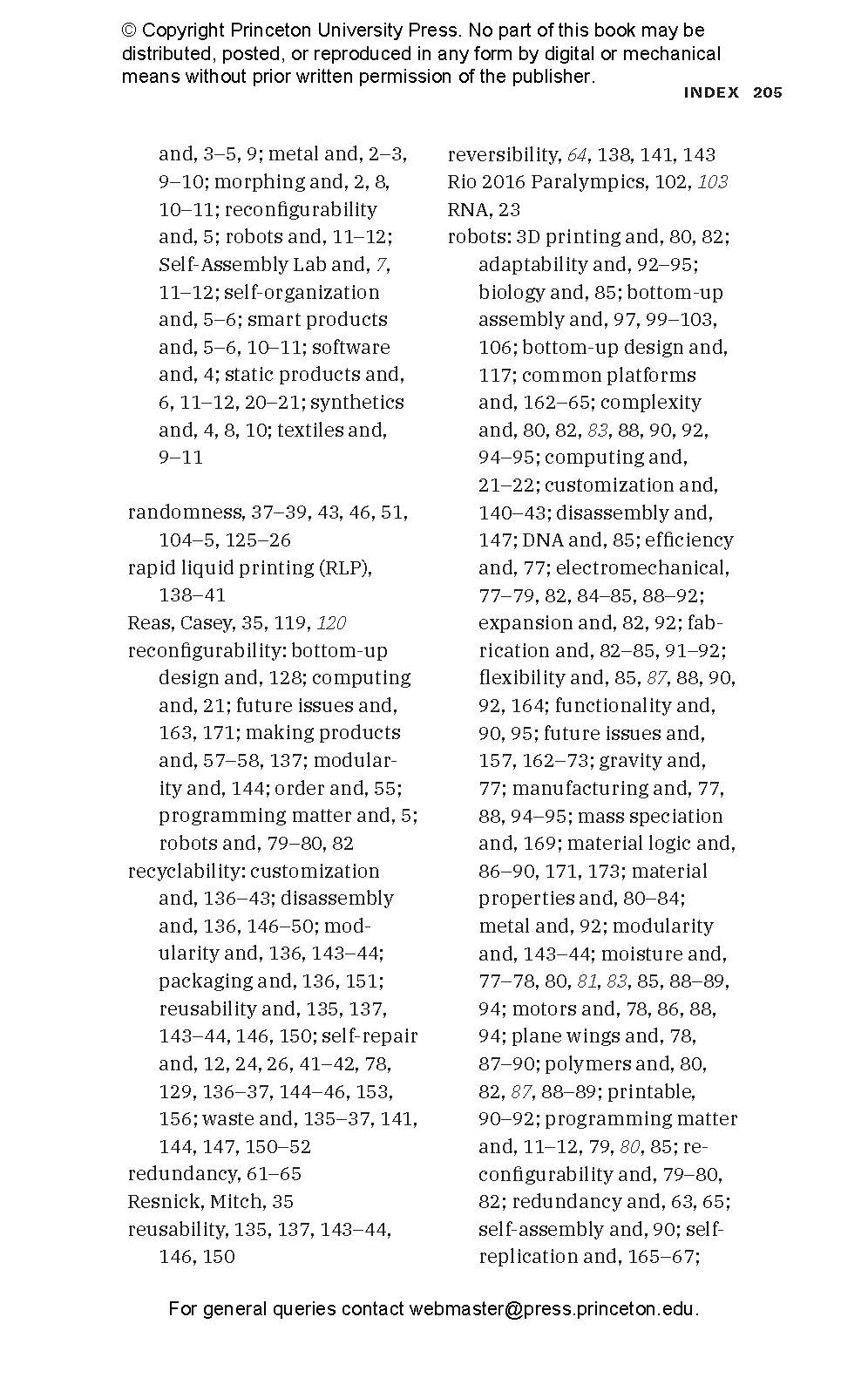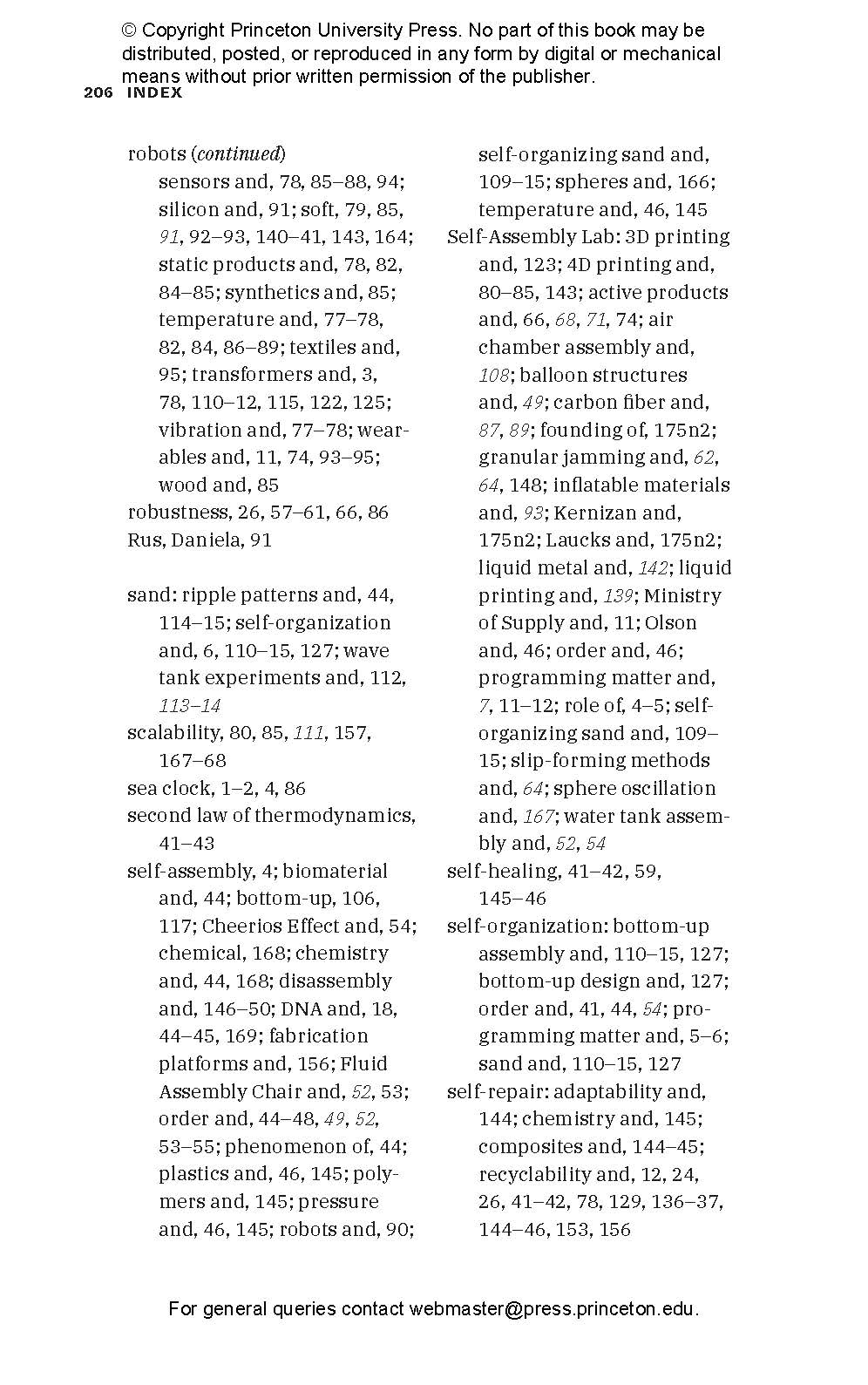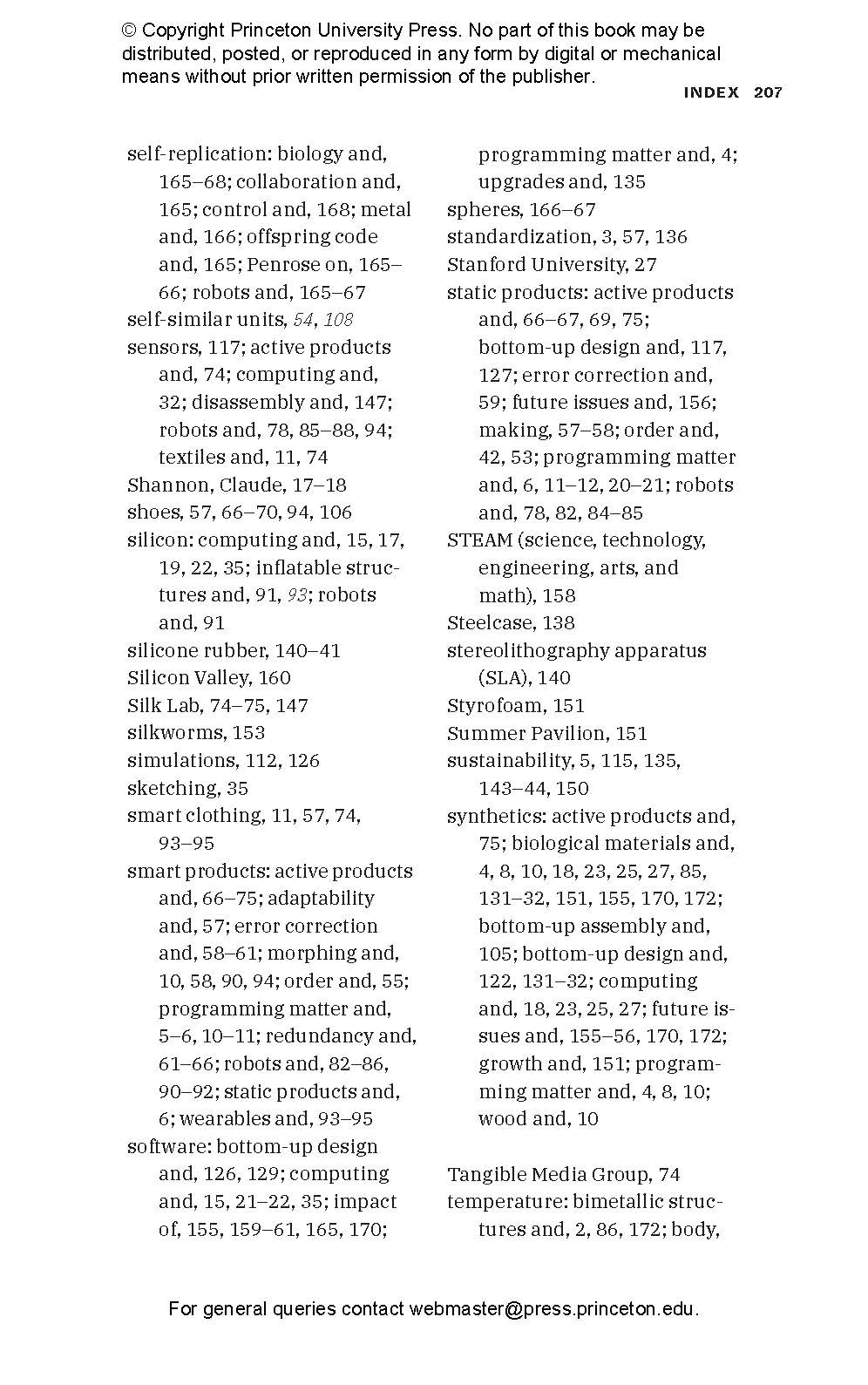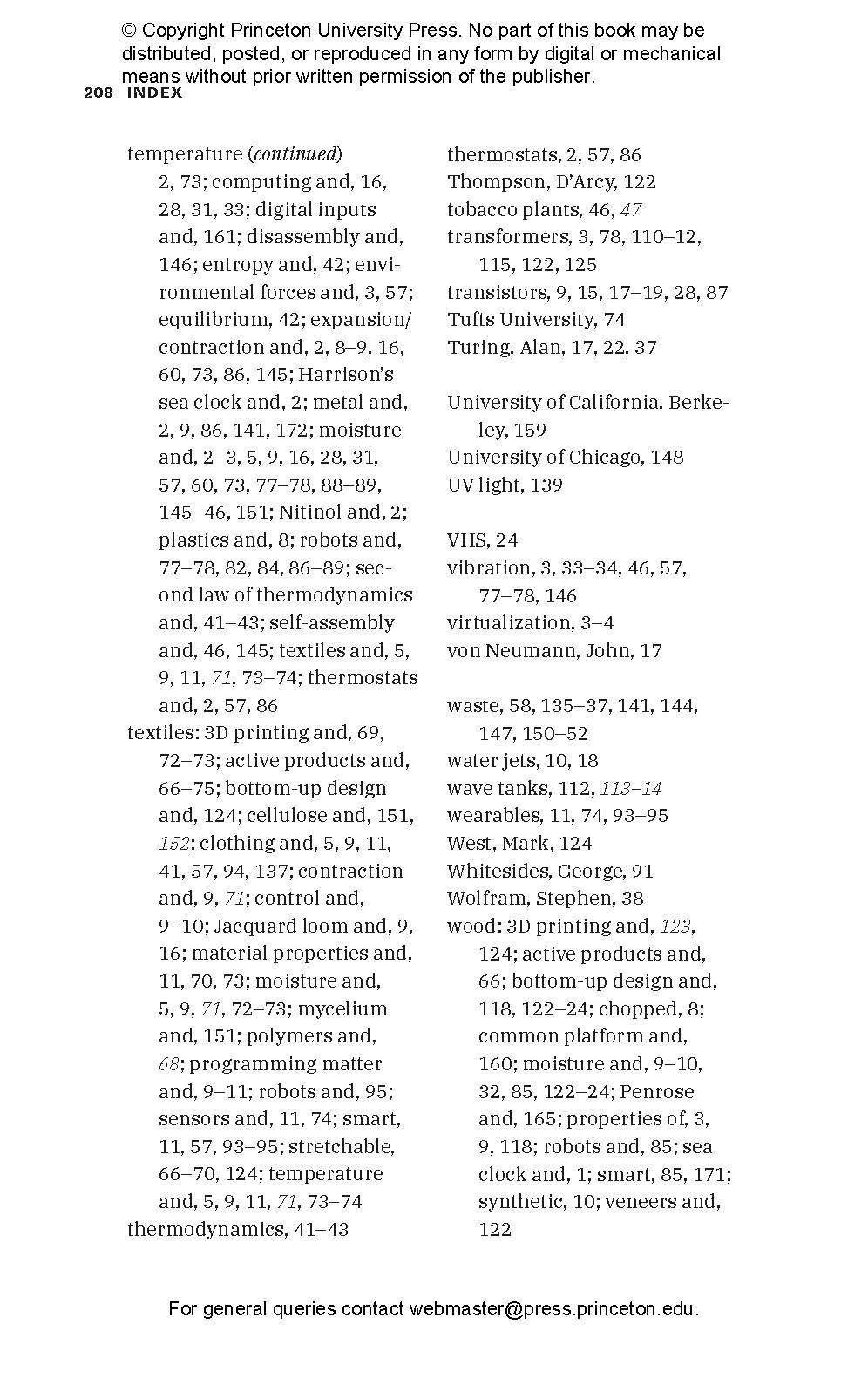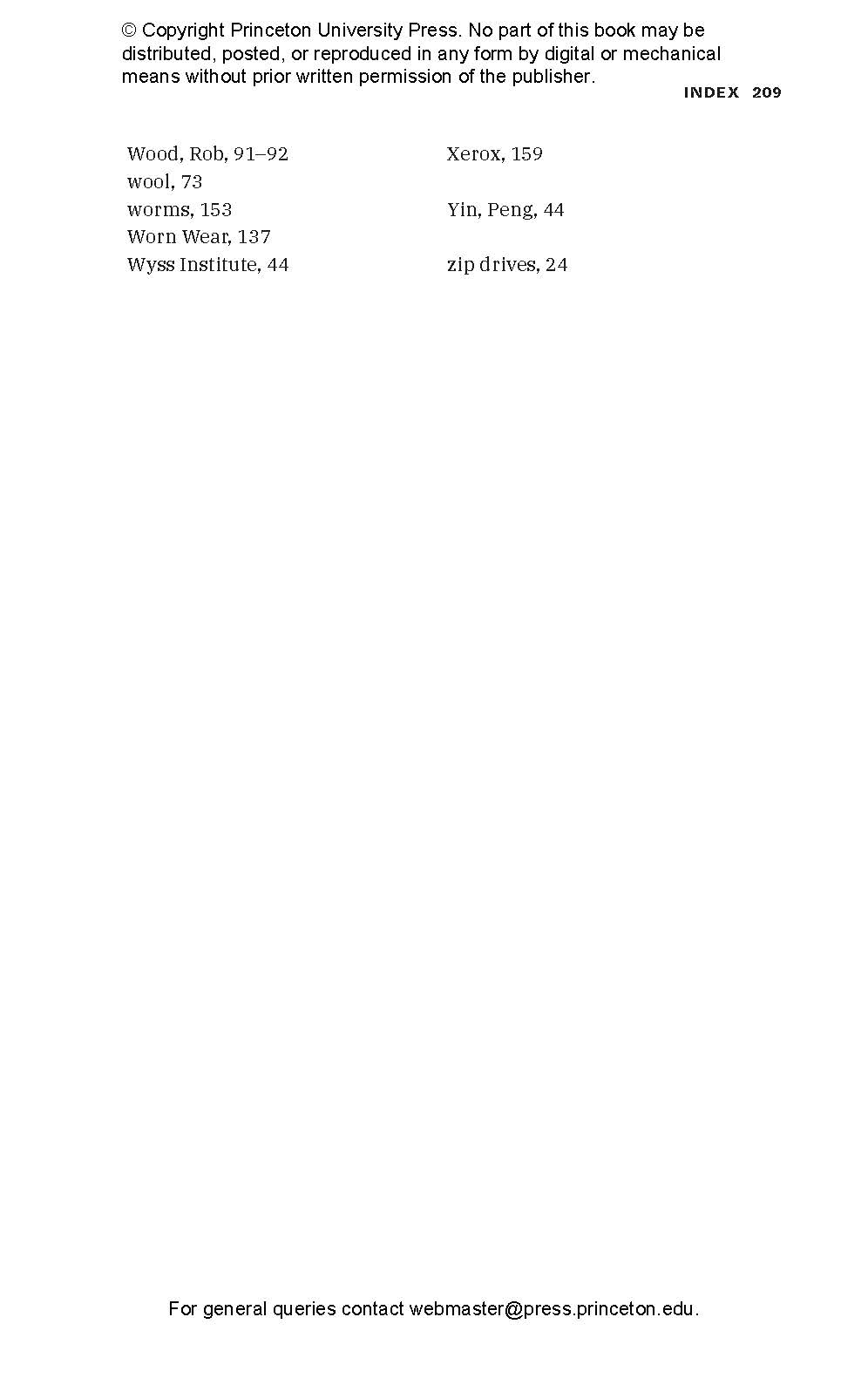Things in life tend to fall apart. Cars break down. Buildings fall into disrepair. Personal items deteriorate. Yet today’s researchers are exploiting newly understood properties of matter to program materials that physically sense, adapt, and fall together instead of apart. These materials open new directions for industrial innovation and challenge us to rethink the way we build and collaborate with our environment. Things Fall Together is a provocative guide to this emerging, often mind-bending reality, presenting a bold vision for harnessing the intelligence embedded in the material world.
Drawing on his pioneering work on self-assembly and programmable material technologies, Skylar Tibbits lays out the core, frequently counterintuitive ideas and strategies that animate this new approach to design and innovation. From furniture that builds itself to shoes printed flat that jump into shape to islands that grow themselves, he describes how matter can compute and exhibit behaviors that we typically associate with biological organisms, and challenges our fundamental assumptions about what physical materials can do and how we can interact with them. Intelligent products today often rely on electronics, batteries, and complicated mechanisms. Tibbits offers a different approach, showing how we can design simple and elegant material intelligence that may one day animate and improve itself—and along the way help us build a more sustainable future.
Compelling and beautifully designed, Things Fall Together provides an insider’s perspective on the materials revolution that lies ahead, revealing the spectacular possibilities for designing active materials that can self-assemble, collaborate, and one day even evolve and design on their own.
Awards and Recognition
- Finalist for the PROSE Award in Engineering and Technology, Association of American Publishers
"Books like Things Fall Together should be required reading for students and veteran designers alike. It’s time for these ideas about material intelligence to leave the lab; to commingle among designers, architects, and engineers; and to start finding their way into reality. Not just as conceptual explorations, but as part of the fabric of our everyday lives."—Luke T. Baker, Metropolis
"Things Fall Together upends commonly held presumptions about how the constructed world operates. . . . We need just this kind of bold, cross-disciplinary thinking to unlock the full potential of designed materials—and to realize a future in which materiality is considered at every stage and scale of the design process."—Blaine Brownell, Architect
"[Things Fall Together] matter-of-factly, without exaggeration or hype, demonstrates that the seemingly wild idea of a biology-like technology is not impossible. . . . Tibbits has done a remarkable service in packing this gigantic vision into a short, readable book. 'Look what is coming!' he says. And we should look."—Kevin Kelly, Reason
"A subtle yet eye-catching book. . . . Things Fall Together provides an insider’s perspective on the materials revolution that lies ahead."—Jenna Collignon, Western Exteriors Magazine
"Tibbits' book is a compact, highly readable explanation of the work carried out at the Self-Assembly Lab and some of the other like-minded labs and institutions around the world."—John Hill, A Daily Dose of Architecture Books
"In Skylar Tibbits's ideal world, roads, buildings, and objects are tingling, made of active materials whose particles and units bind and unbind and recombine in mesmerizing harmony. There is little to no waste, an endless trove of new forms and solutions, and the ability to test and perfect along the way. I want to go there."—Paola Antonelli, senior curator of architecture and design and director of research and development, Museum of Modern Art
"In this book, Tibbits proposes a future where artificial intelligence is not an end in itself but an embodied feature of the products that we make. It is a future that is more humane precisely because of the shared tactility and materiality of stuff. There is no doubt in my mind that the future of materials science lies in the development of the types of animate matter described in this book."—Mark Miodownik, author of Stuff Matters
"Things Fall Together is a revolutionary book that helps us see into the future. Skylar Tibbits provides new design possibilities that rely on biological principles to activate materials into self-assembly. His pioneering approach is exactly what we need for Mars exploration and other space missions."—Dava Newman, Apollo Professor of Aeronautics and Astronautics at MIT and former NASA Deputy Administrator
"Much like how material innovation in vacuum tubes and transistors paved the way for Moore's law in electronics and computing at a nano scale, Tibbits's Things Fall Together lays a road map for exponential improvements in the logic and functionality of everyday materials at a macro scale."—Gihan Amarasiriwardena, Ministry of Supply
"This book offers invaluable insights into a highly influential body of research that promises to have a major impact on the discourse of architecture. Things Fall Together is a fascinating read."—Neil Leach, coeditor of Digital Tectonics
"This engaging and well-written book will inspire designers, engineers, and anyone who enjoys popular science, and is sure to stimulate research in the broader scientific community."—Nikolaus Correll, University of Colorado Boulder
